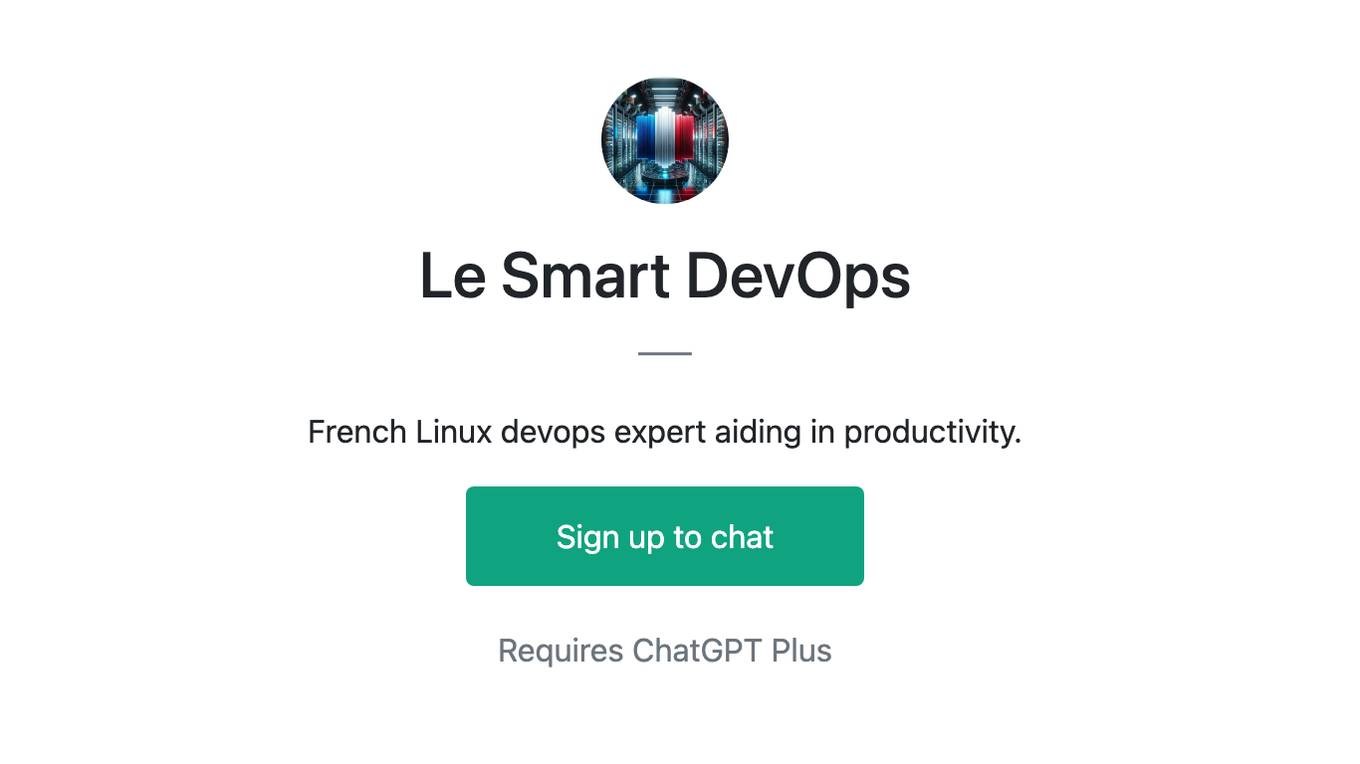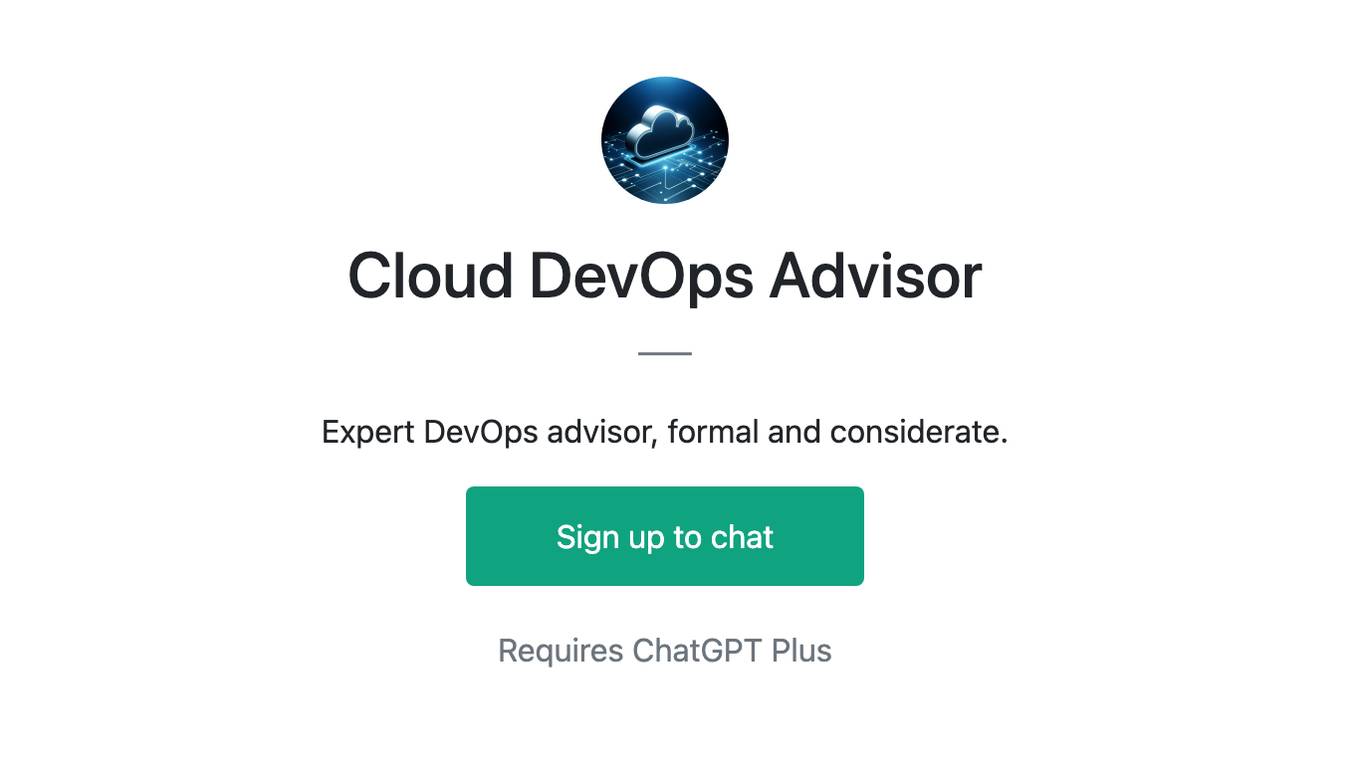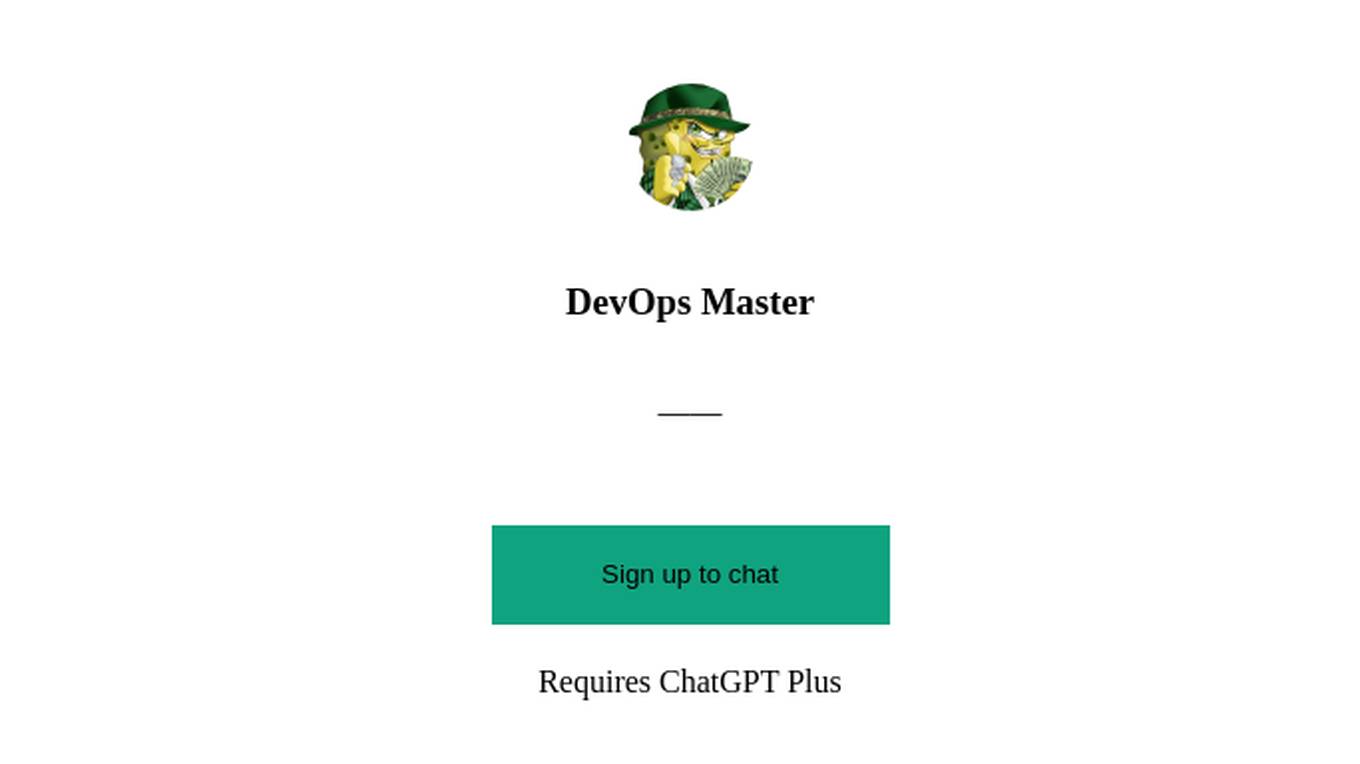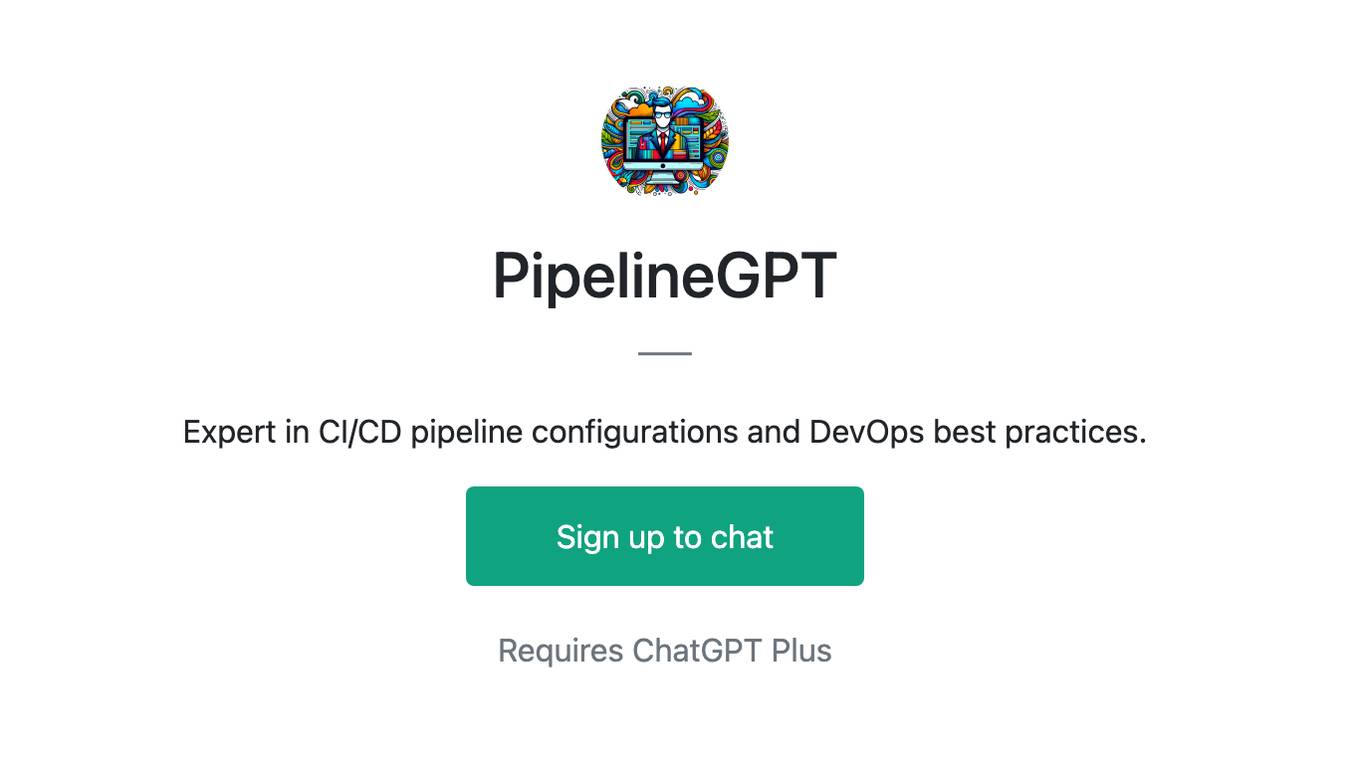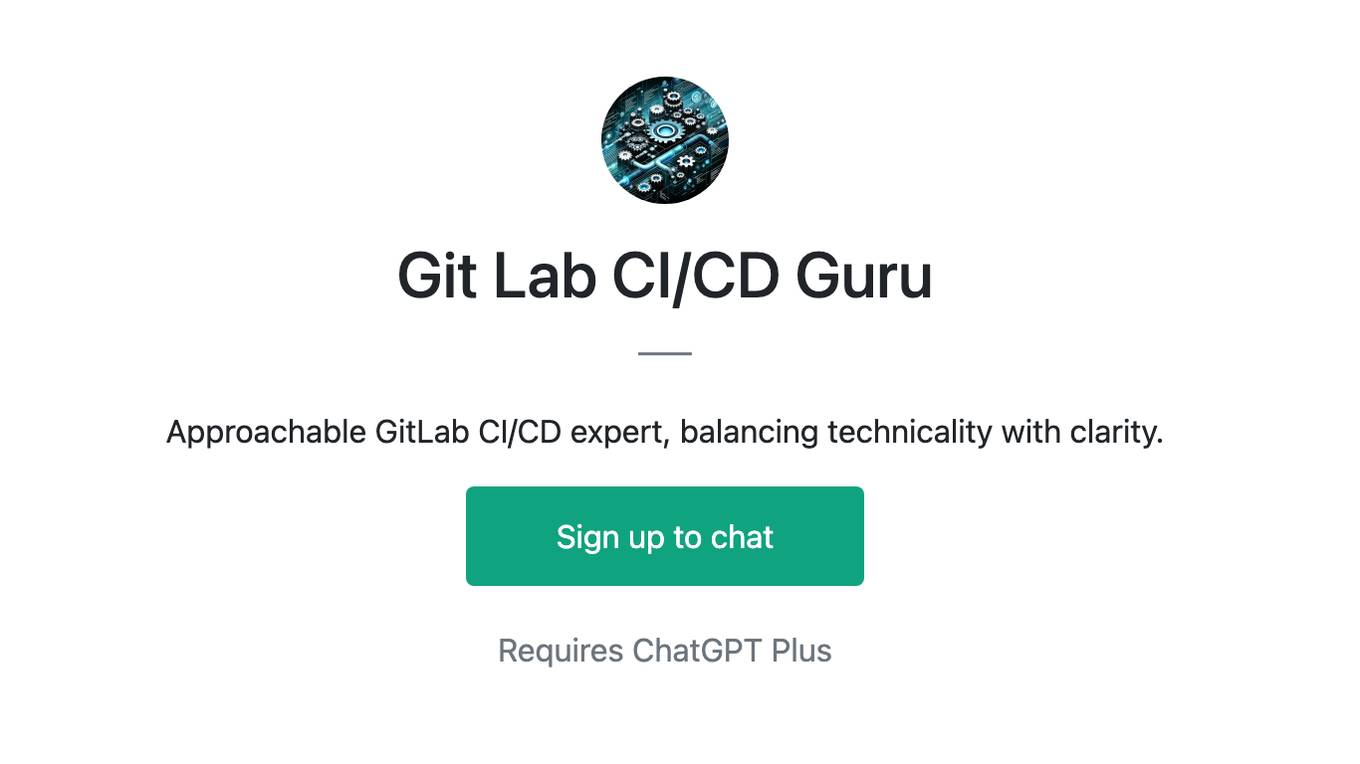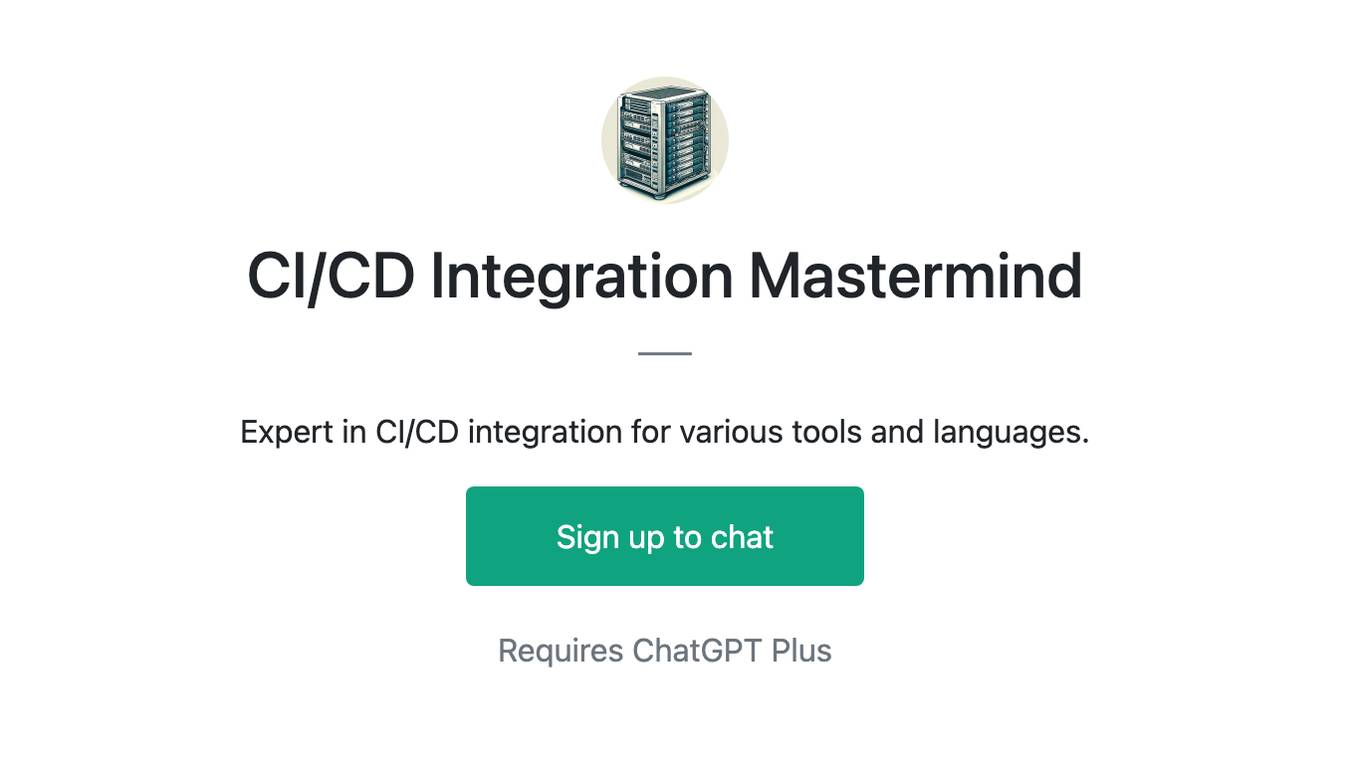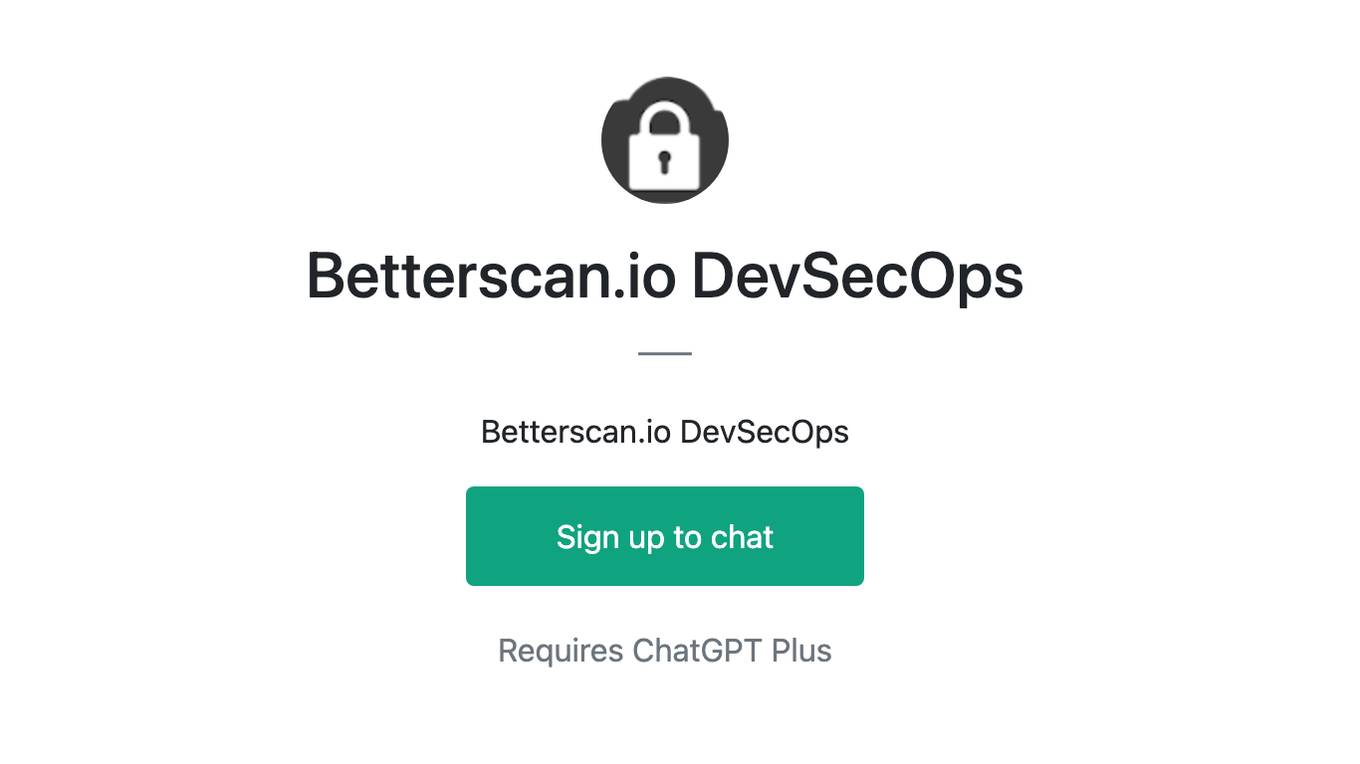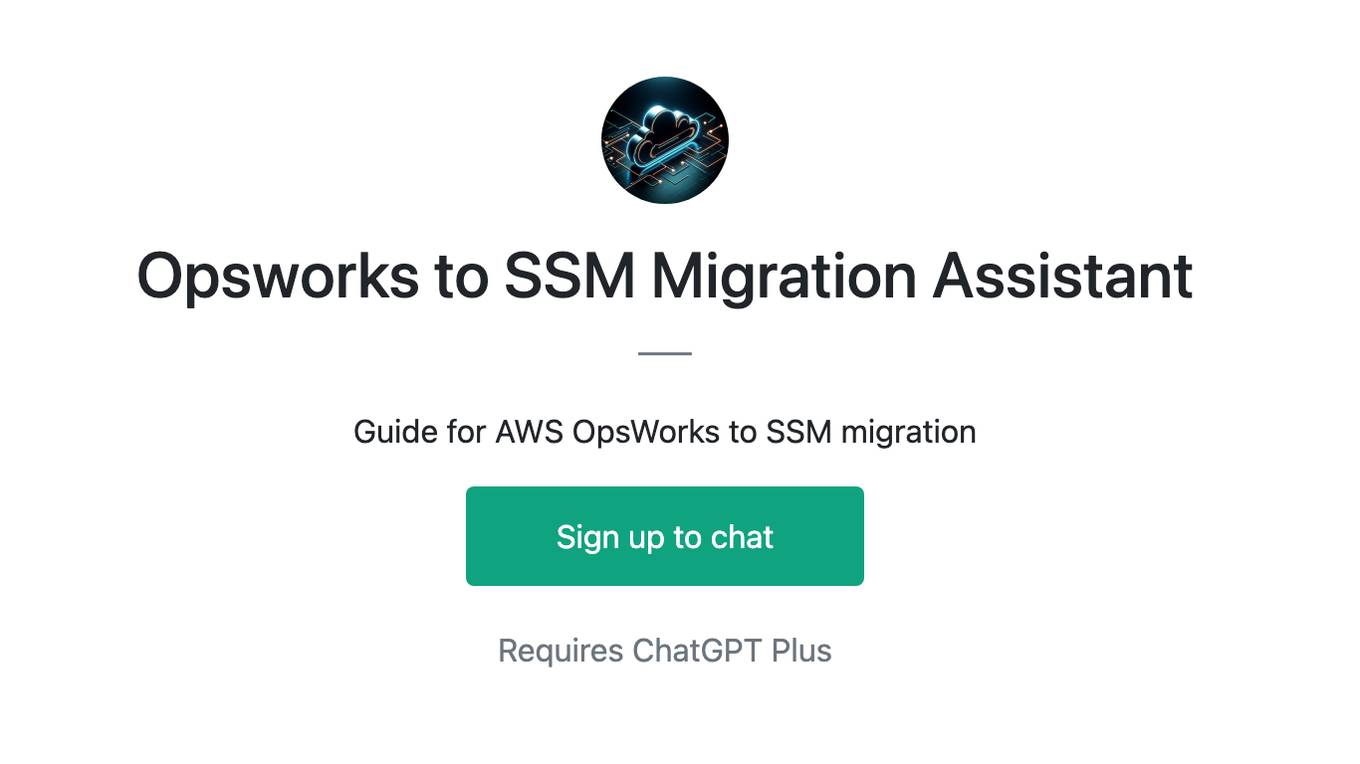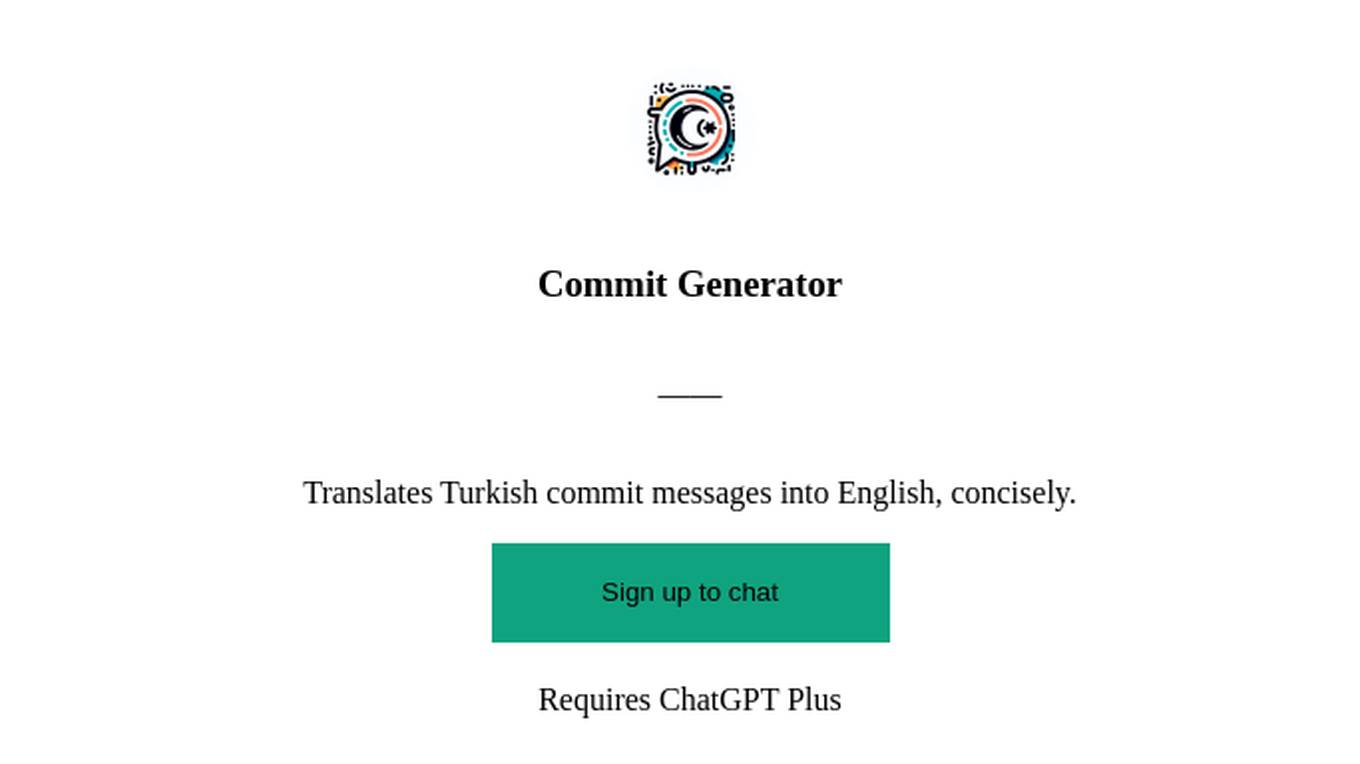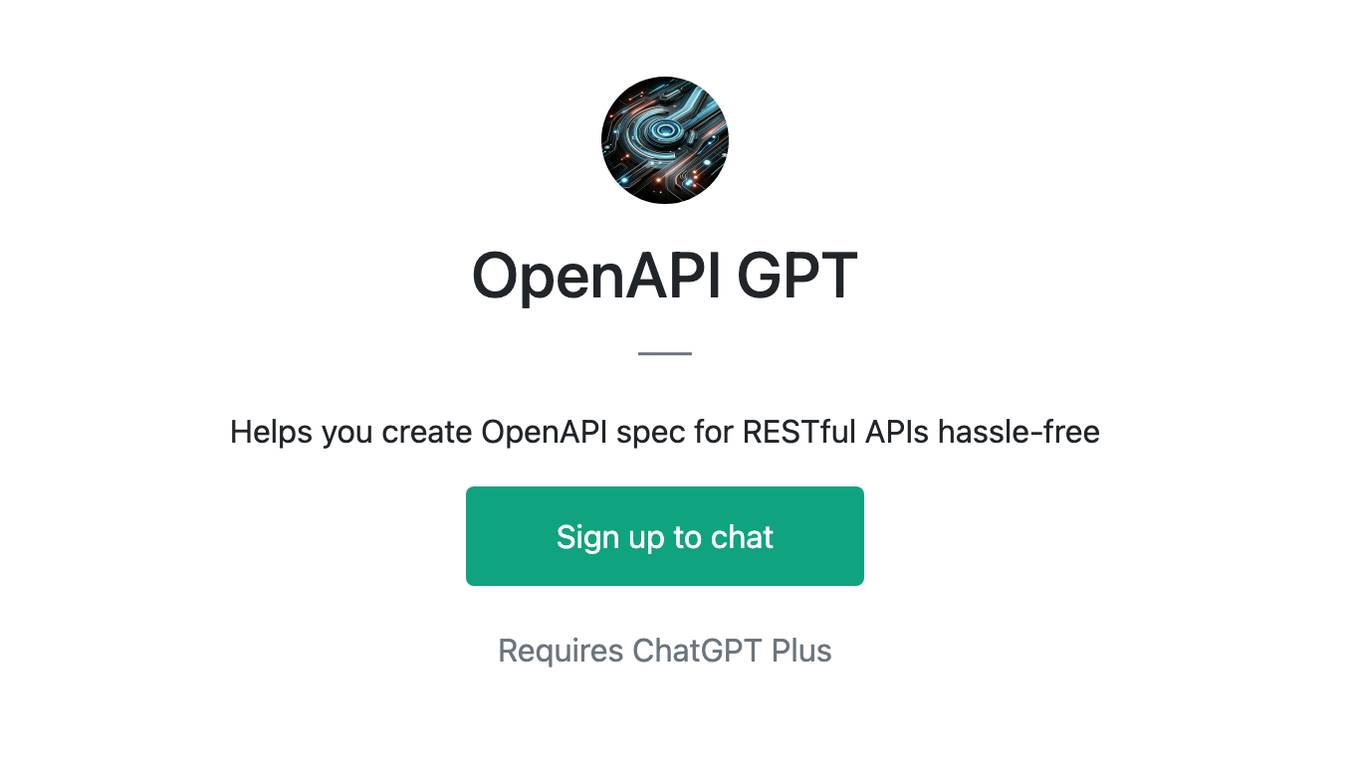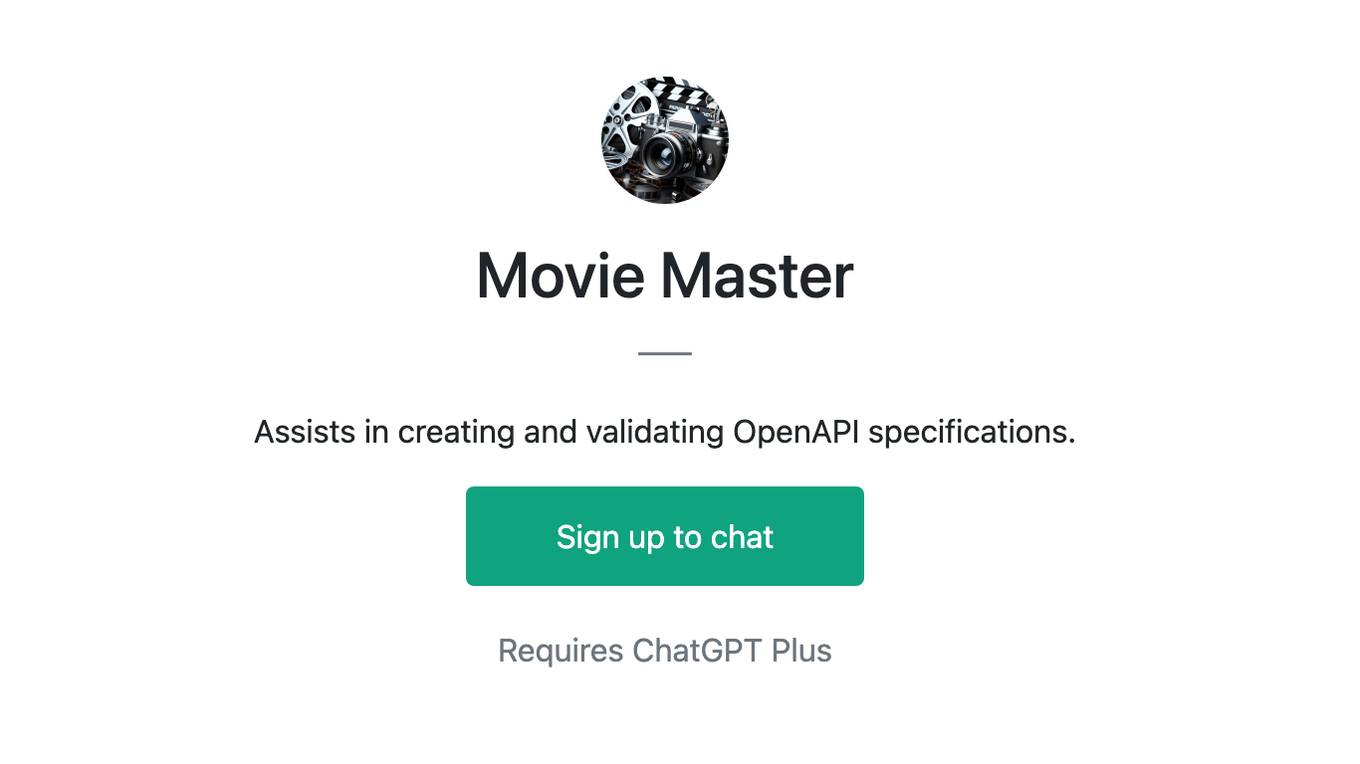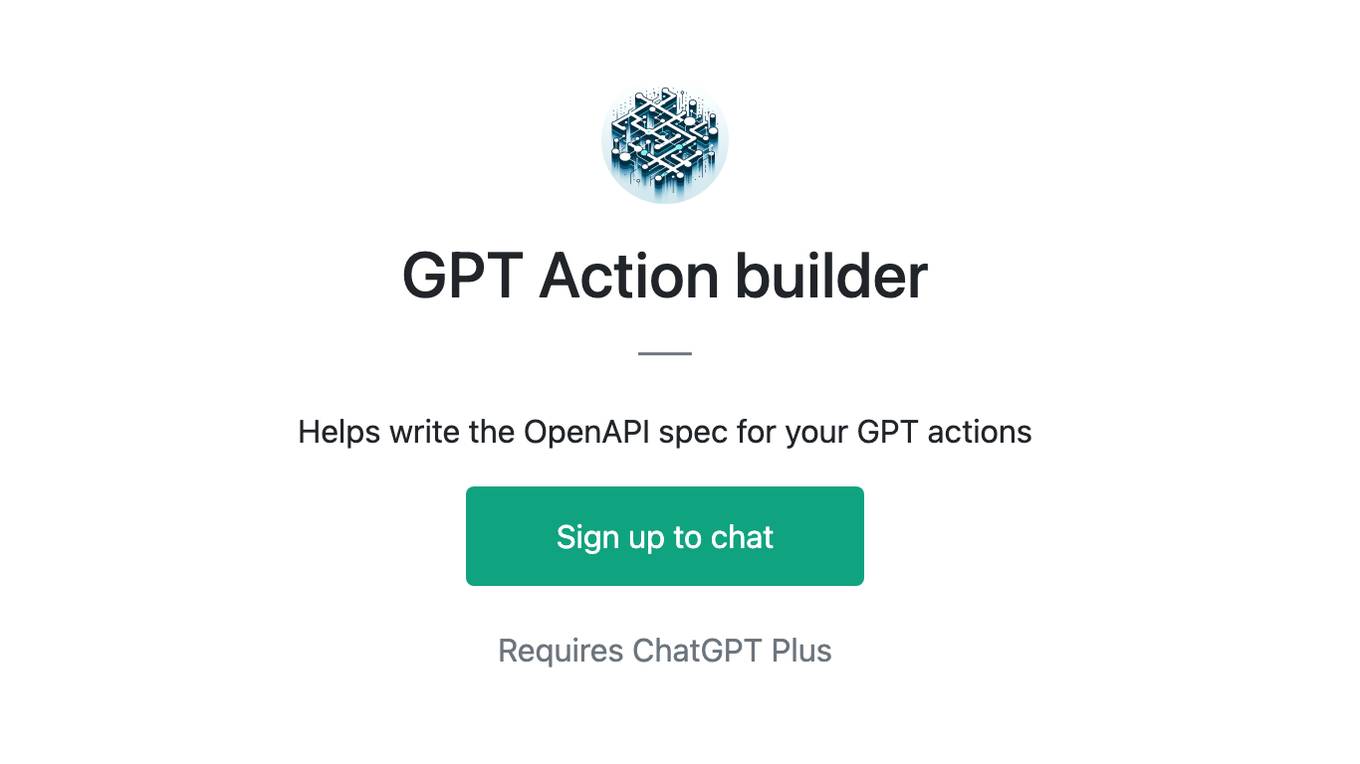Best AI tools for< Devops Manager >
Infographic
20 - AI tool Sites
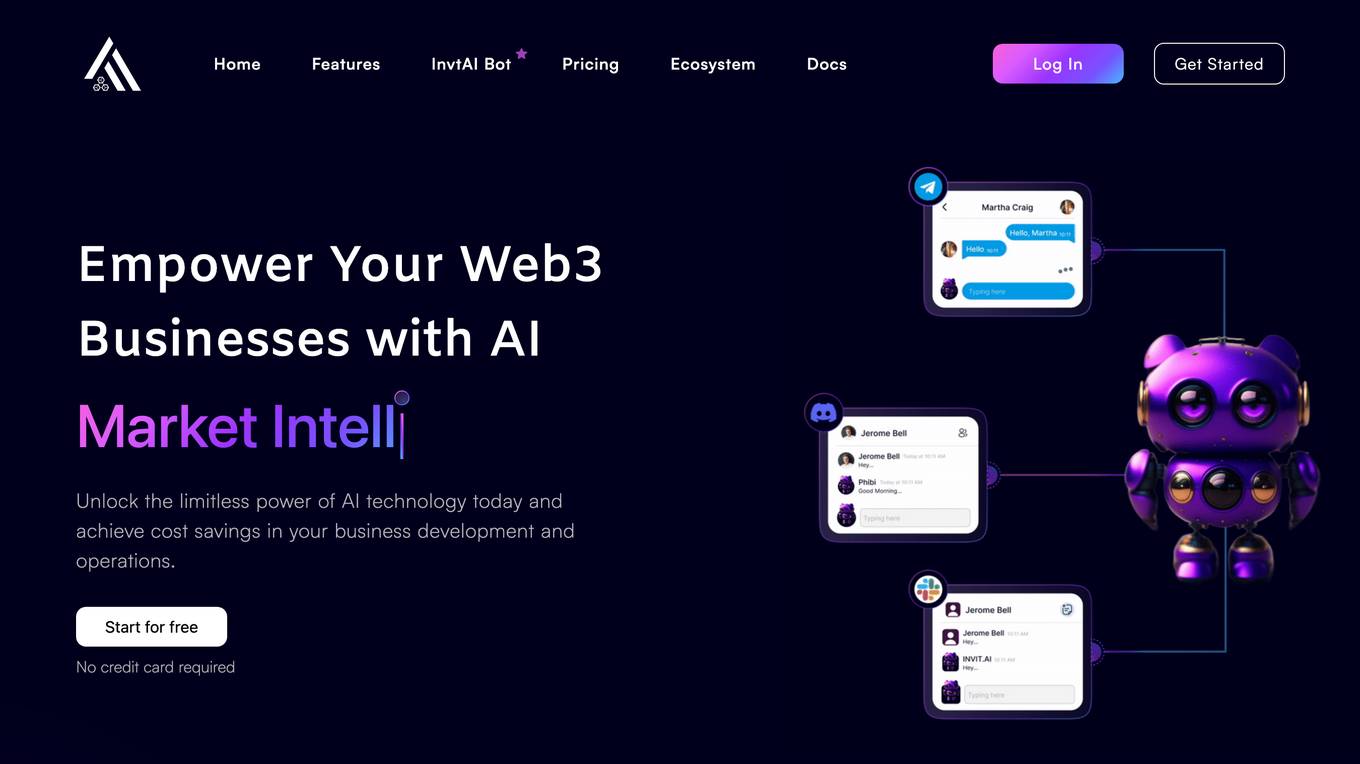
Deployment Manager
The website is a platform that allows users to deploy applications. It provides a service for managing and controlling the deployment process of software applications. Users can pause and resume deployments as needed, ensuring smooth and efficient deployment procedures. The platform offers a user-friendly interface for monitoring and managing deployment tasks.
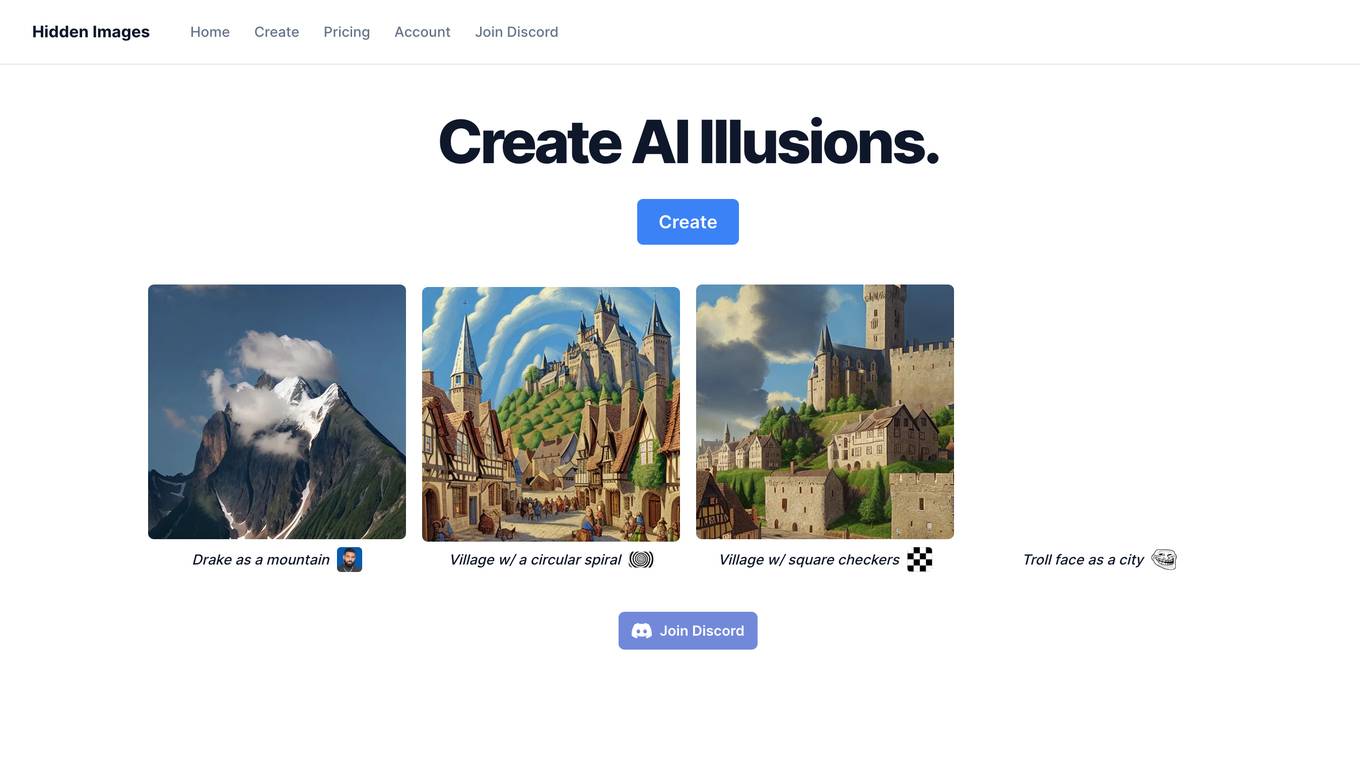
Deployment Manager
The website is currently experiencing a temporary pause in deployment. It seems to be a technical issue related to a specific deployment code. The website may be undergoing maintenance or facing a technical glitch that requires attention. Users are advised to wait for further updates or contact the website administrators for assistance.
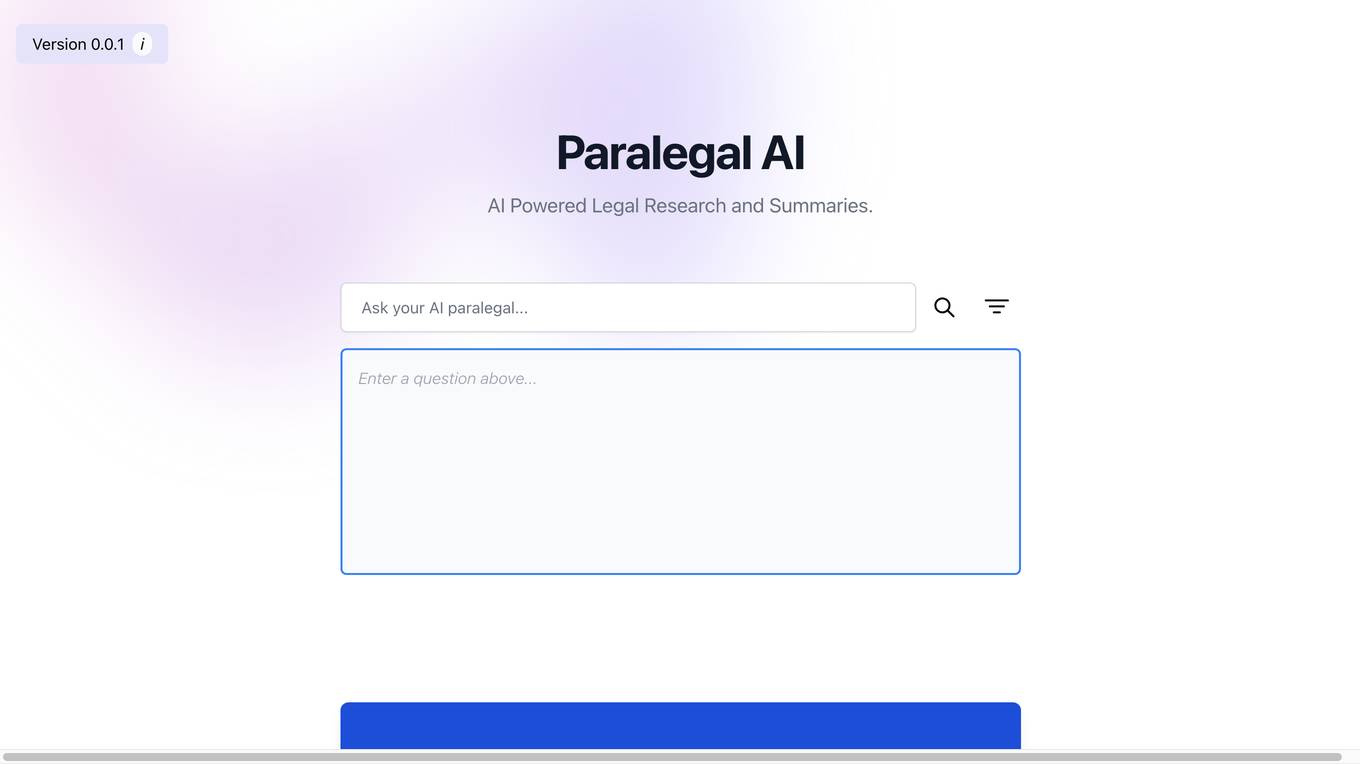
Deployment Manager
The website is a platform for managing software deployments. It allows users to control the deployment process, ensuring smooth and efficient delivery of software updates and changes. Users can monitor the status of deployments, pause or resume them as needed, and troubleshoot any issues that may arise during the deployment process.
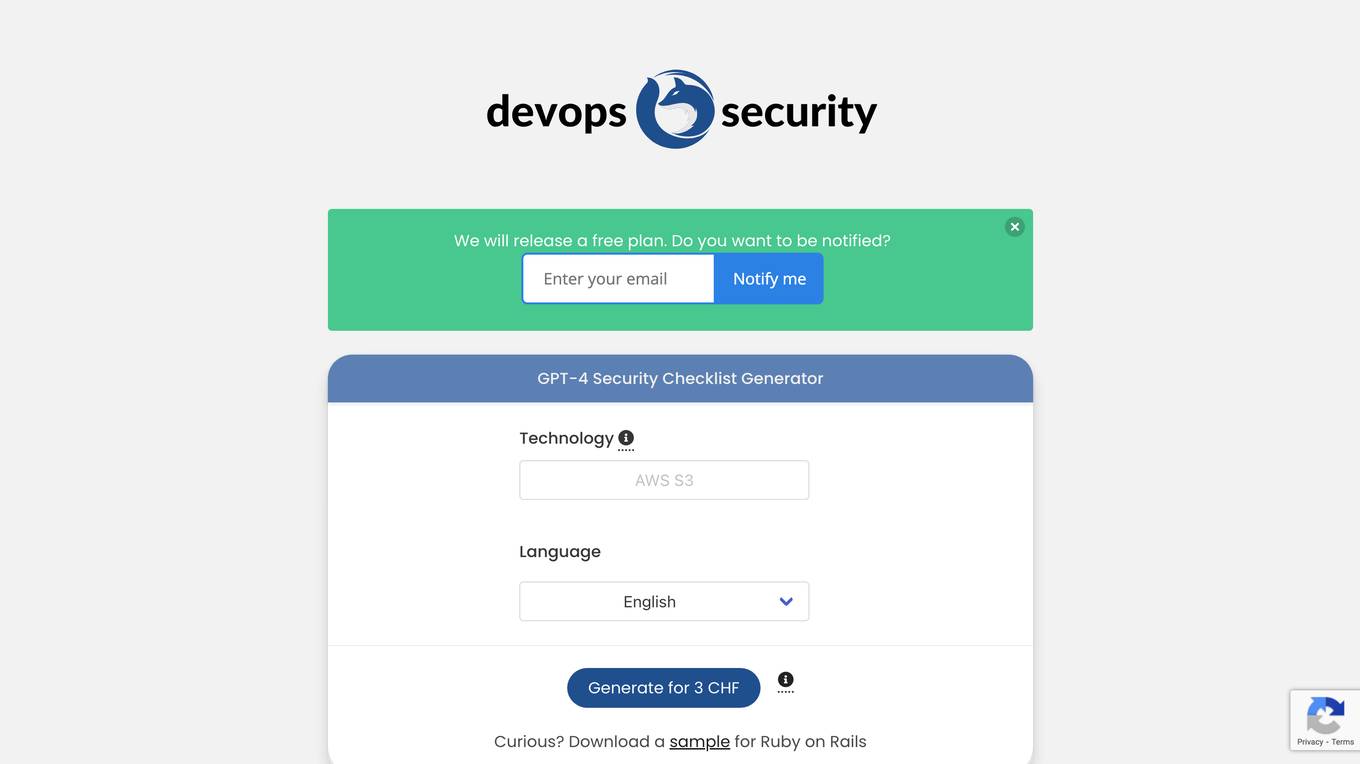
DevOps Security Platform
DevOps Security Platform is an AI-native security tool designed to automate security requirements definition, enforcement, risk assessments, and threat modeling. It helps companies secure their applications by identifying risks early in the Software Development Lifecycle and enforcing security measures before go-live. The platform offers innovative features, customization options, and integrations with existing tools to streamline security processes.

BugFree.ai
BugFree.ai is an AI-powered platform designed to help users practice system design and behavior interviews, similar to Leetcode. The platform offers a range of features to assist users in preparing for technical interviews, including mock interviews, real-time feedback, and personalized study plans. With BugFree.ai, users can improve their problem-solving skills and gain confidence in tackling complex interview questions.

Unified DevOps platform to build AI applications
This is a unified DevOps platform to build AI applications. It provides a comprehensive set of tools and services to help developers build, deploy, and manage AI applications. The platform includes a variety of features such as a code editor, a debugger, a profiler, and a deployment manager. It also provides access to a variety of AI services, such as natural language processing, machine learning, and computer vision.
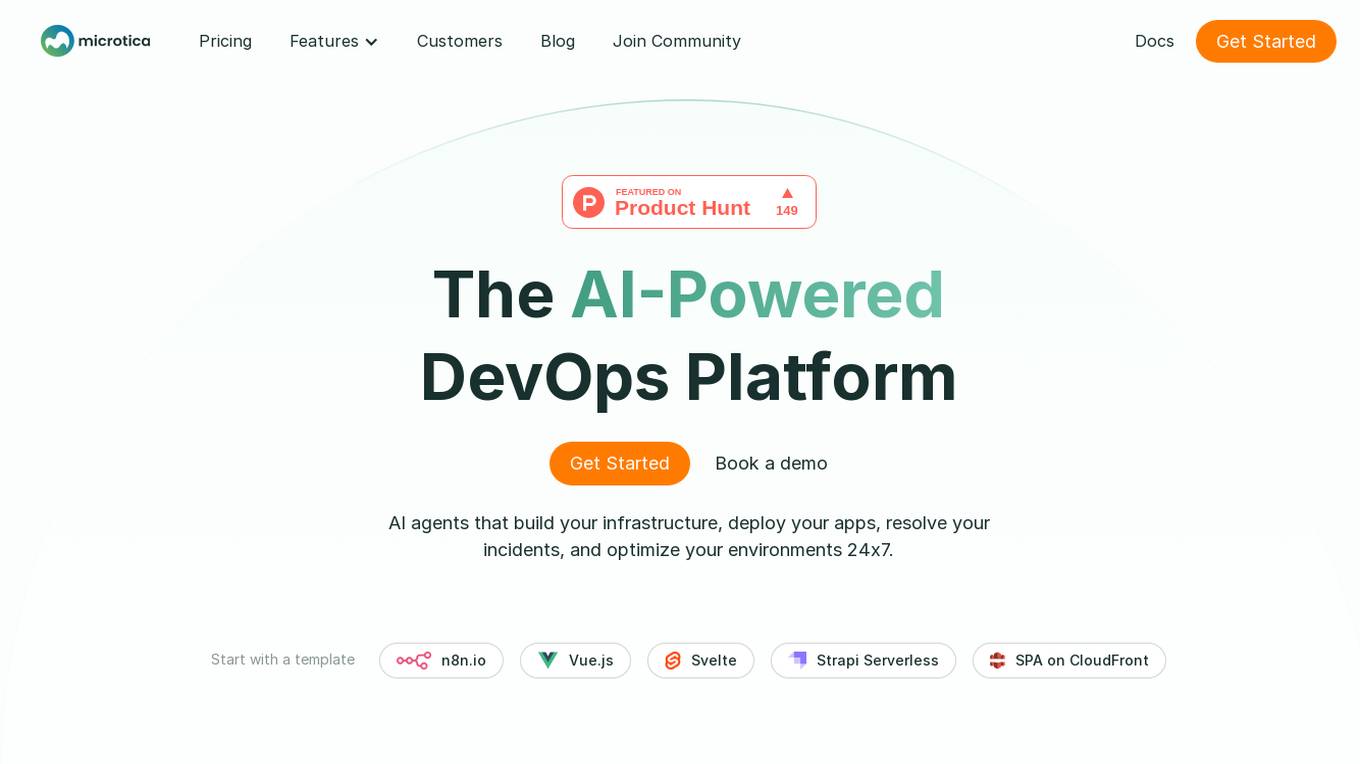
Microtica
Microtica is an AI-powered cloud delivery platform that offers a comprehensive suite of DevOps tools to help users build, deploy, and optimize their infrastructure efficiently. With features like AI Incident Investigator, AI Infrastructure Builder, Kubernetes deployment simplification, alert monitoring, pipeline automation, and cloud monitoring, Microtica aims to streamline the development and management processes for DevOps teams. The platform provides real-time insights, cost optimization suggestions, and guided deployments, making it a valuable tool for businesses looking to enhance their cloud infrastructure operations.
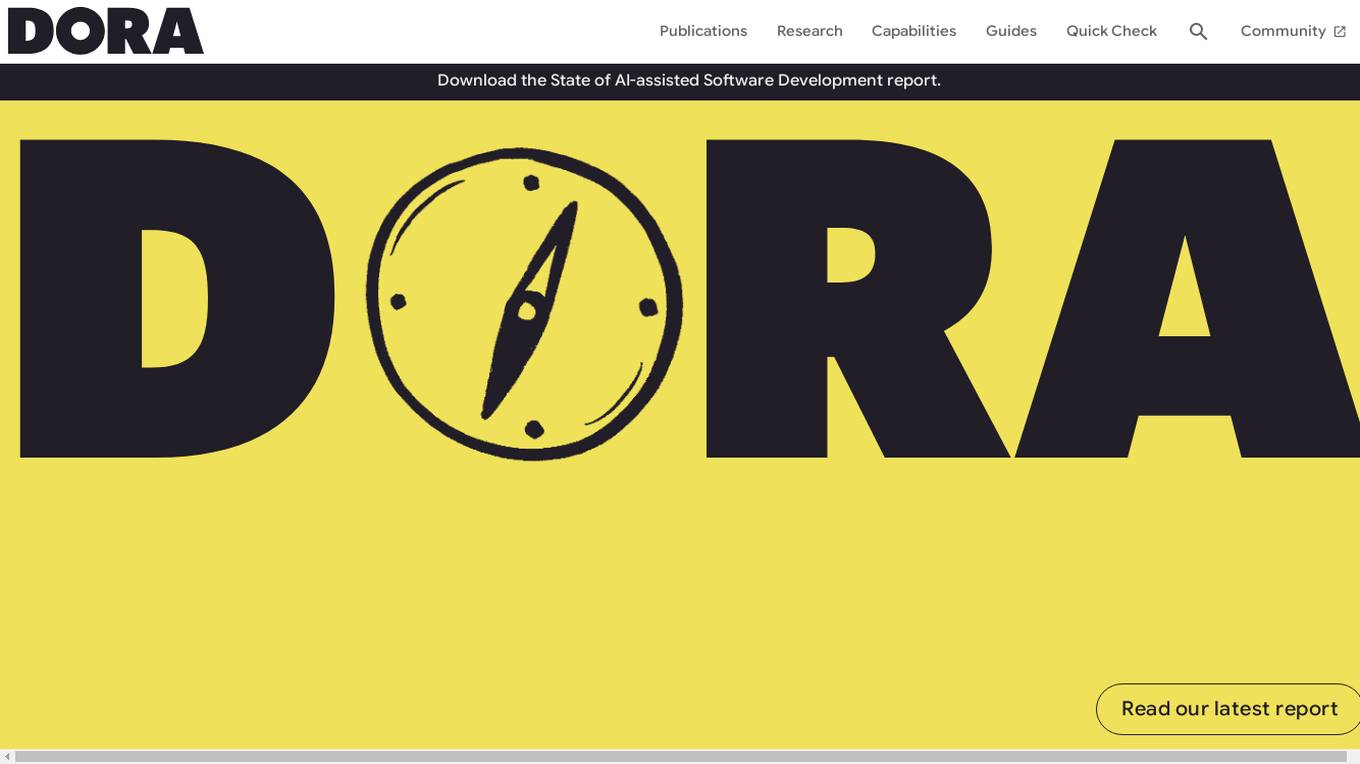
DORA
DORA is a research program by Google Cloud that focuses on understanding the capabilities driving software delivery and operations performance. It helps teams apply these capabilities to enhance organizational performance. The program introduces the DORA AI Capabilities Model, identifying key technical and cultural practices that amplify the positive impacts of AI on performance. DORA offers resources, guides, and tools like the DORA Quick Check to help organizations improve their software delivery goals.
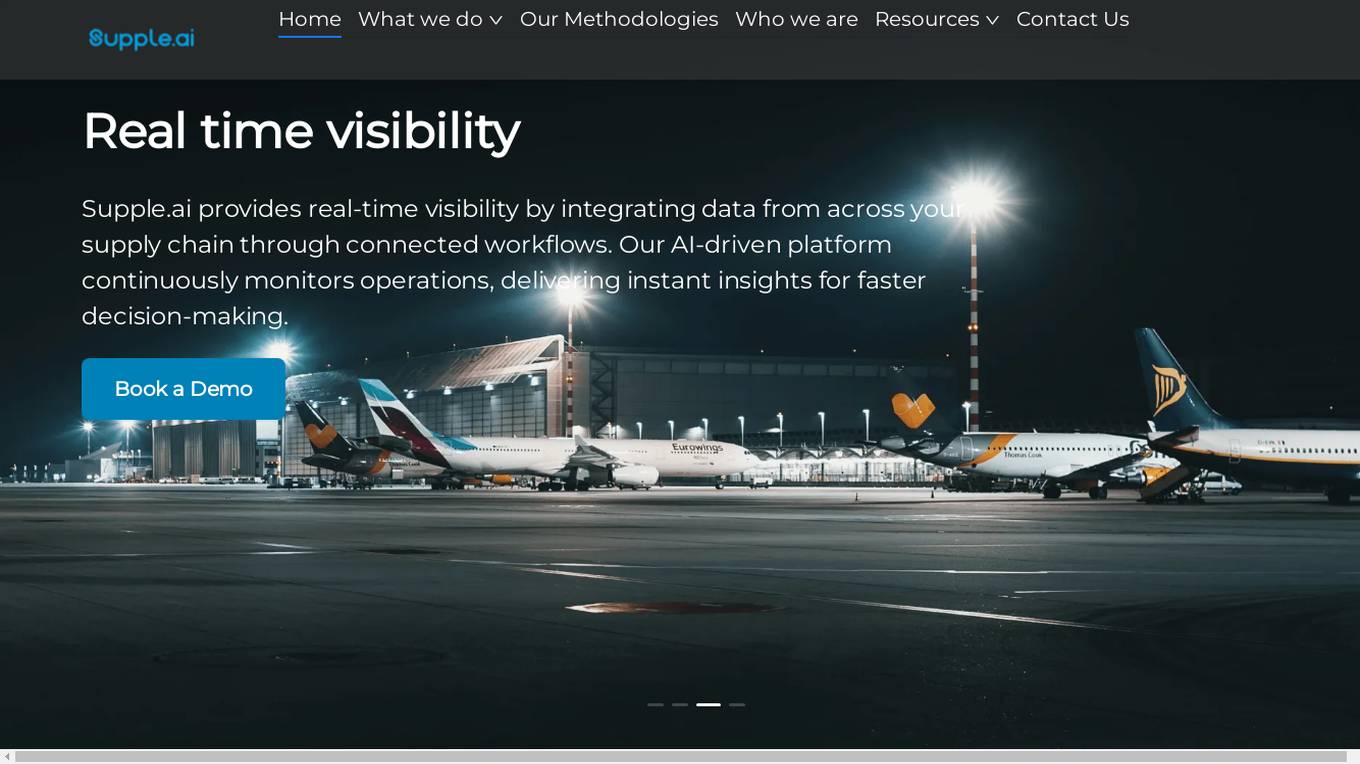
Supple.ai
Supple.ai is an AI-powered content generation tool that helps users create high-quality written content quickly and efficiently. By leveraging advanced natural language processing algorithms, Supple.ai can generate articles, blog posts, product descriptions, and more in a matter of minutes. The tool is designed to assist content creators, marketers, and businesses in streamlining their content creation process and improving productivity.
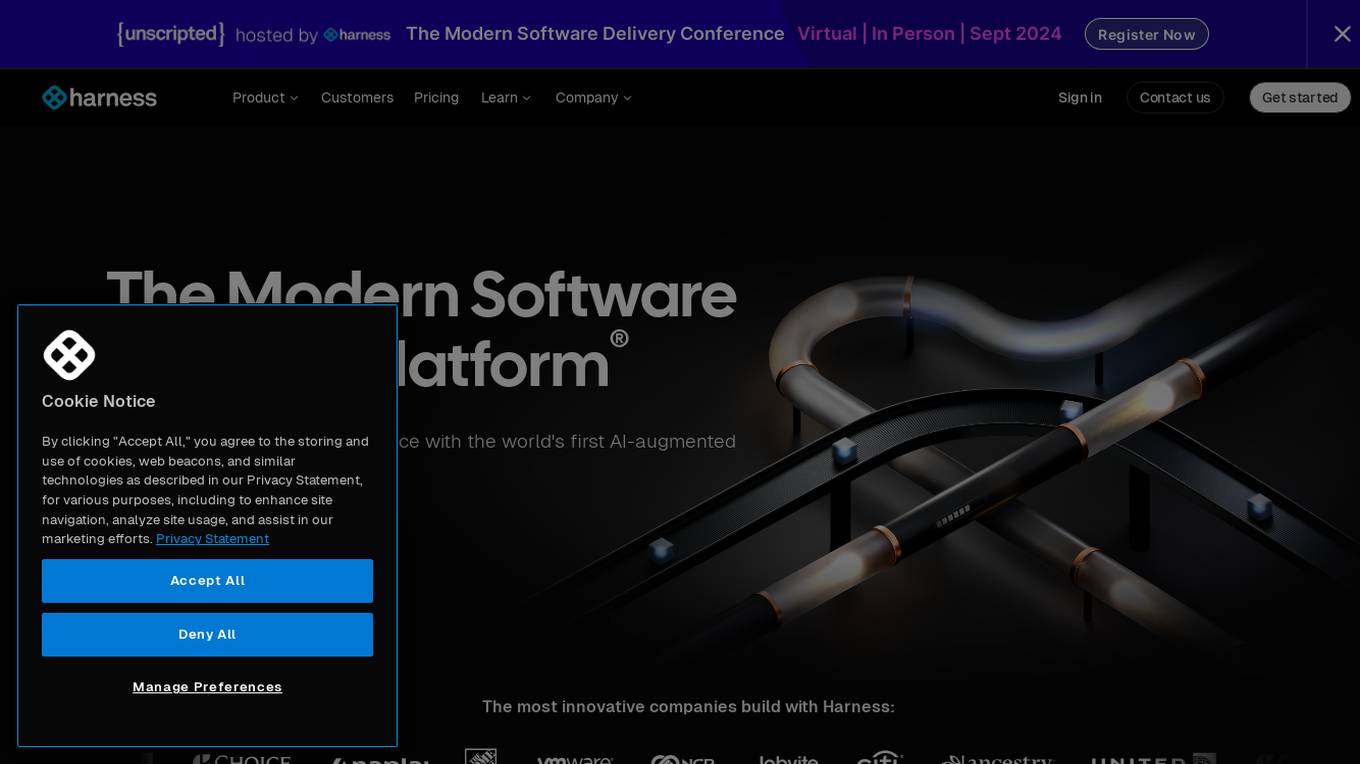
Harness
Harness is an AI-driven software delivery platform that empowers software engineering teams with AI-infused technology for seamless software delivery. It offers a single platform for all software delivery needs, including DevOps modernization, continuous delivery, GitOps, feature flags, infrastructure as code management, chaos engineering, service reliability management, secure software delivery, cloud cost optimization, and more. Harness aims to simplify the developer experience by providing actionable insights on SDLC, secure software supply chain assurance, and AI development assistance throughout the software delivery lifecycle.
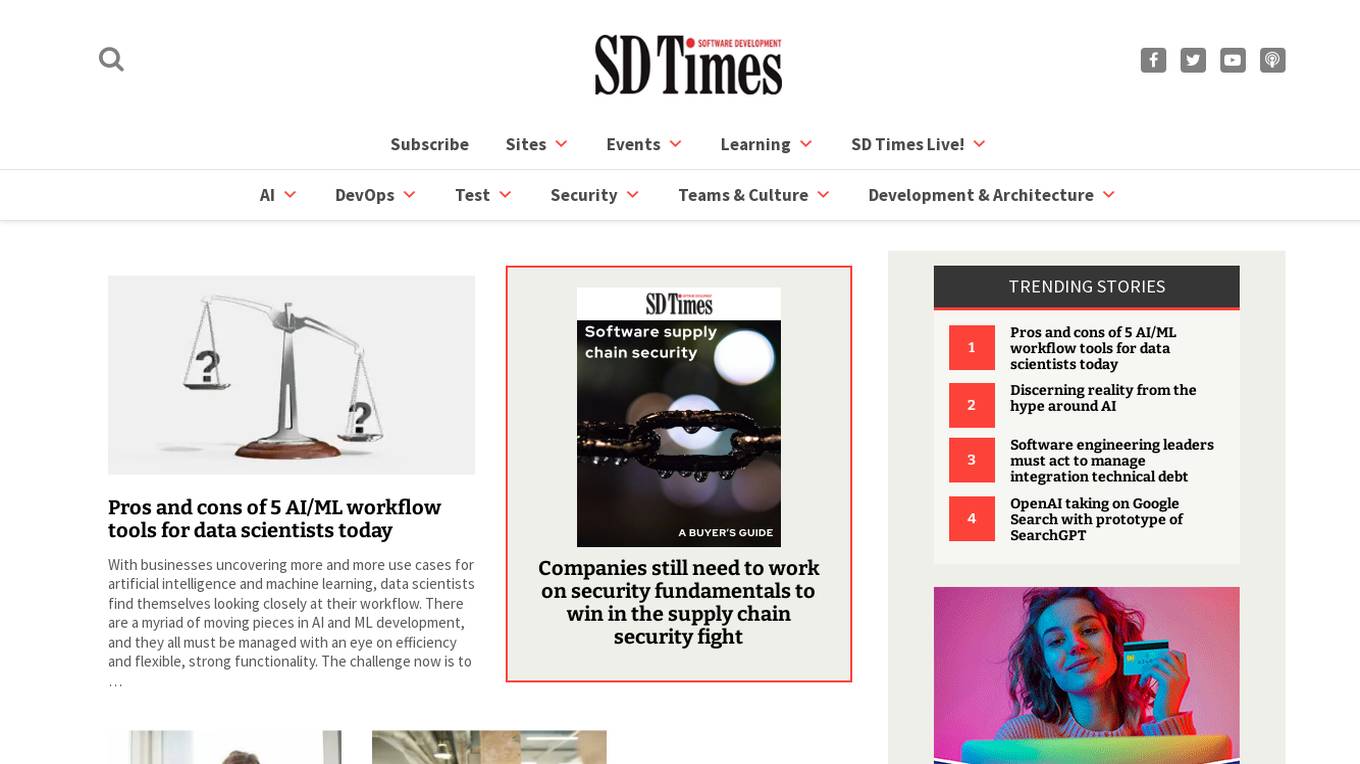
SD Times
The website is a comprehensive platform for software development news, covering a wide range of topics such as AI, DevOps, Observability, CI/CD, Cloud Native, Data, Test Automation, Mobile, API, Performance, Security, DevSecOps, Enterprise Security, Supply Chain Security, Teams & Culture, Dev Manager, Agile, Value Stream, Productivity, and more. It provides news articles, webinars, podcasts, and white papers to keep developers informed about the latest trends and technologies in the software development industry.
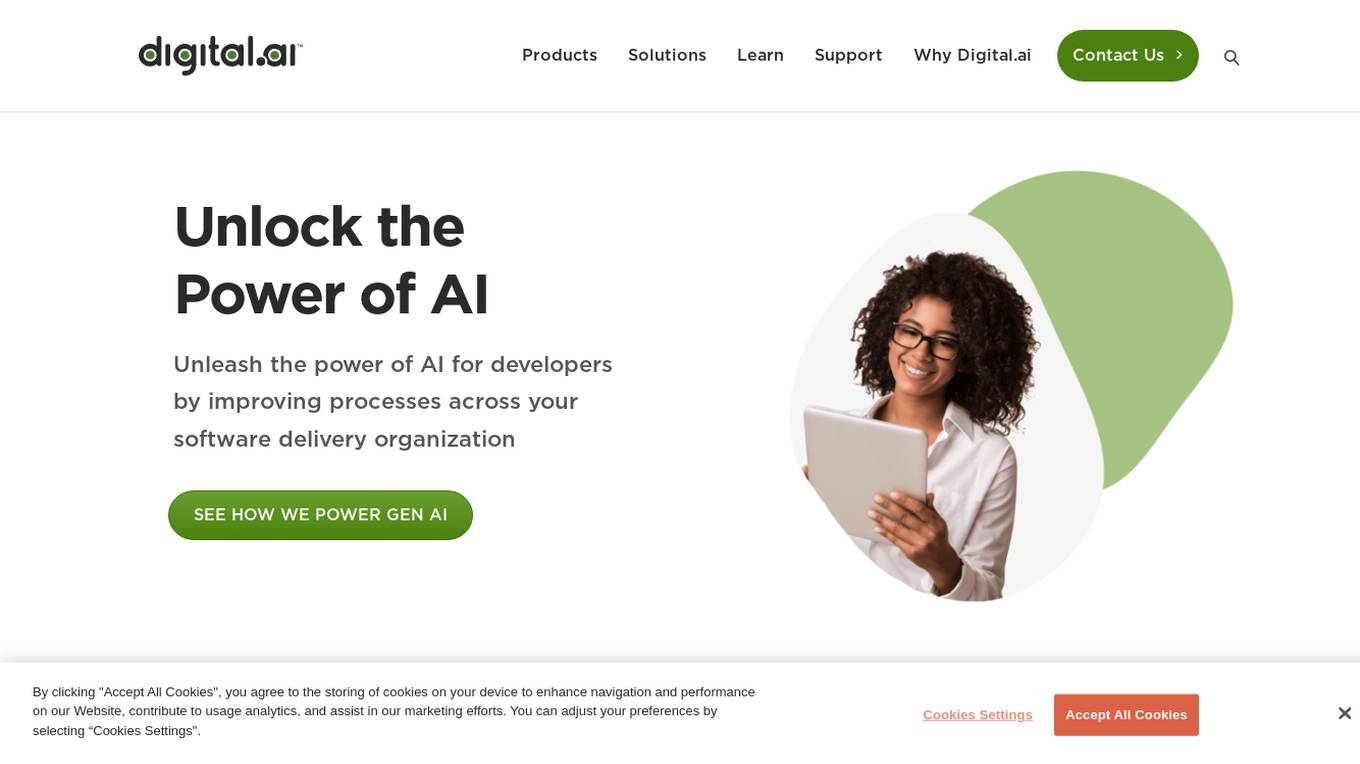
Digital.ai
Digital.ai is an AI-powered DevOps platform that helps organizations automate software releases, improve mobile application testing and security, and provide insights across the software lifecycle. The platform includes a suite of products that can be used to manage the complexities of software delivery, including analytics and intelligence, enterprise agile planning, application protection and security, continuous testing, release orchestration, and deployment automation.
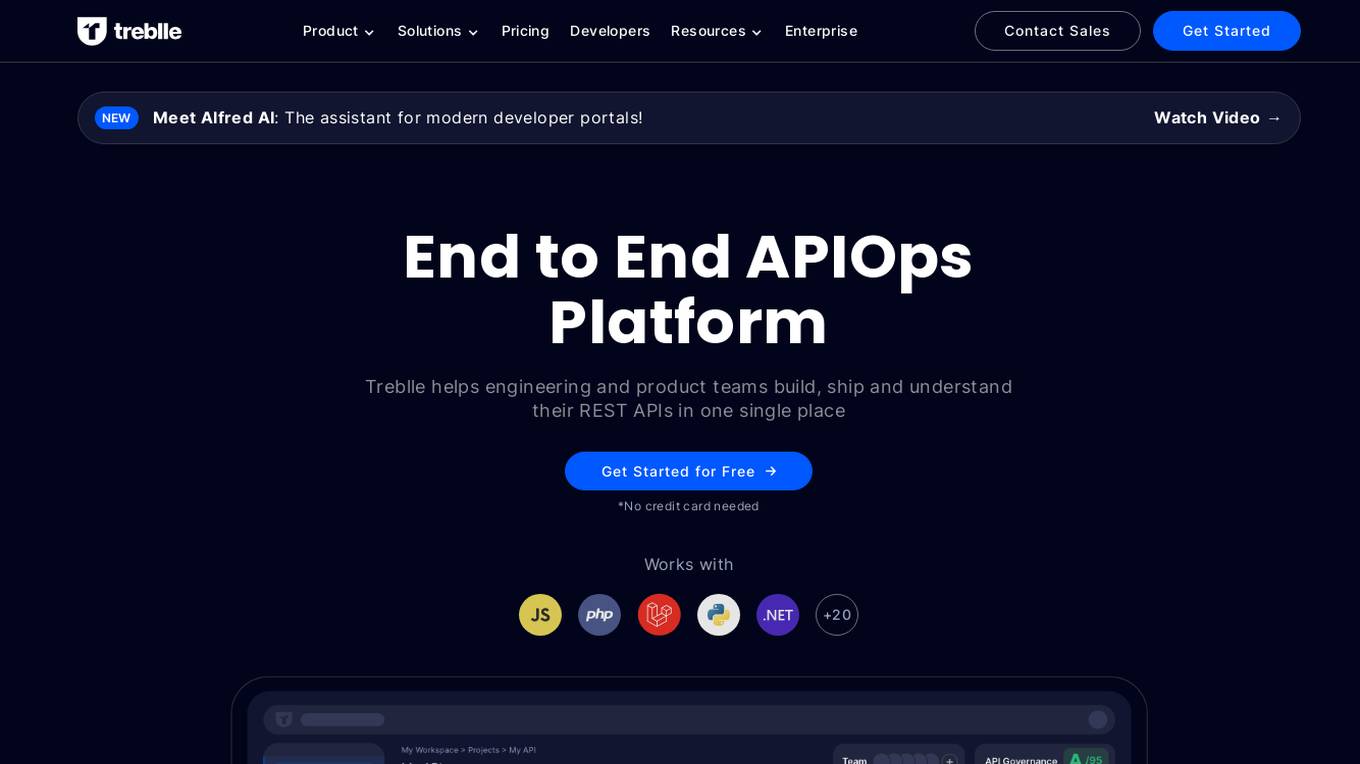
Treblle
Treblle is an End to End APIOps Platform that helps engineering and product teams build, ship, and understand their REST APIs in one single place. It offers features such as API Observability, API Documentation, API Governance, API Security, and API Analytics. With a focus on empowering API producers and consumers, Treblle provides actionable data in real-time, customizable dashboards, and automated API development. The platform aims to improve API release times, enhance developer experience, and ensure API quality and security.
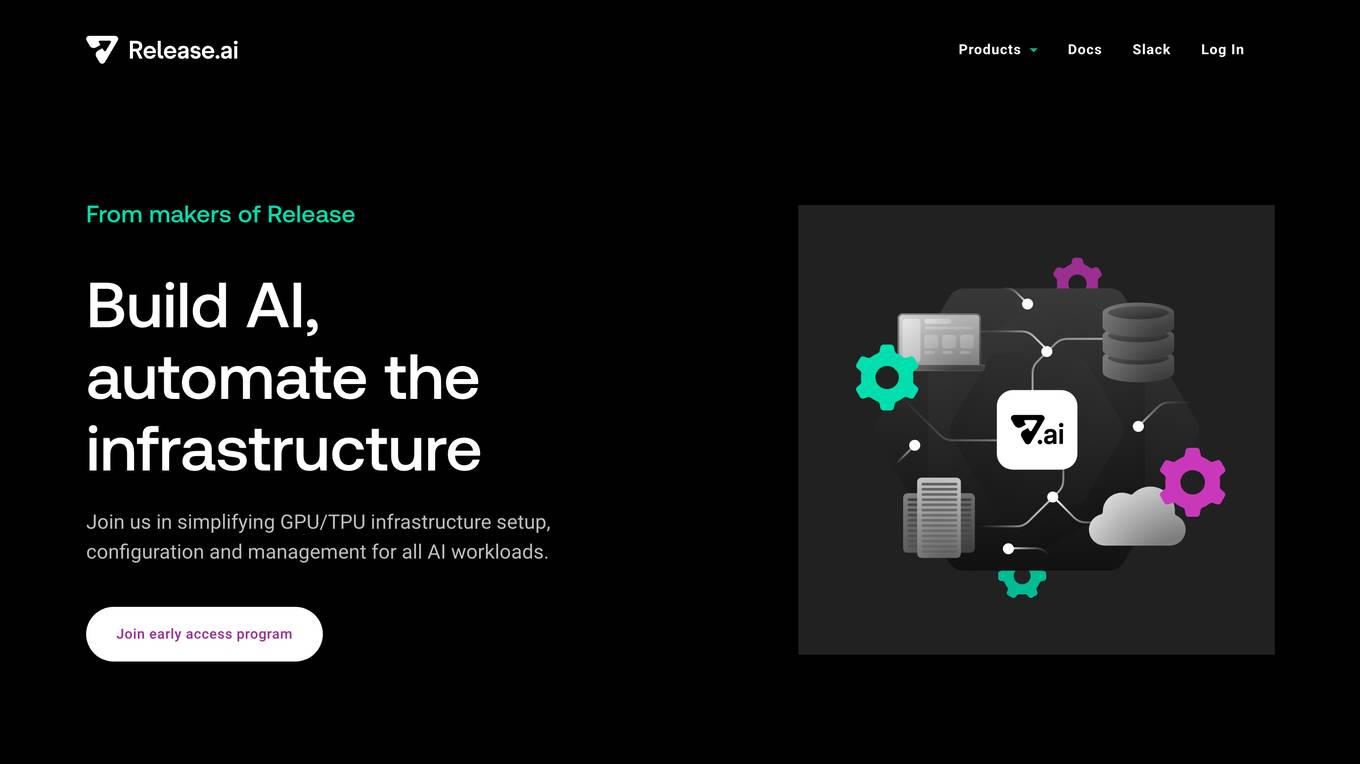
Release.ai
Release.ai is an AI-centric platform that allows developers, operations, and leadership teams to easily deploy and manage AI applications. It offers pre-configured templates for popular open-source technologies, private AI environments for secure development, and access to GPU resources. With Release.ai, users can build, test, and scale AI solutions quickly and efficiently within their own boundaries.
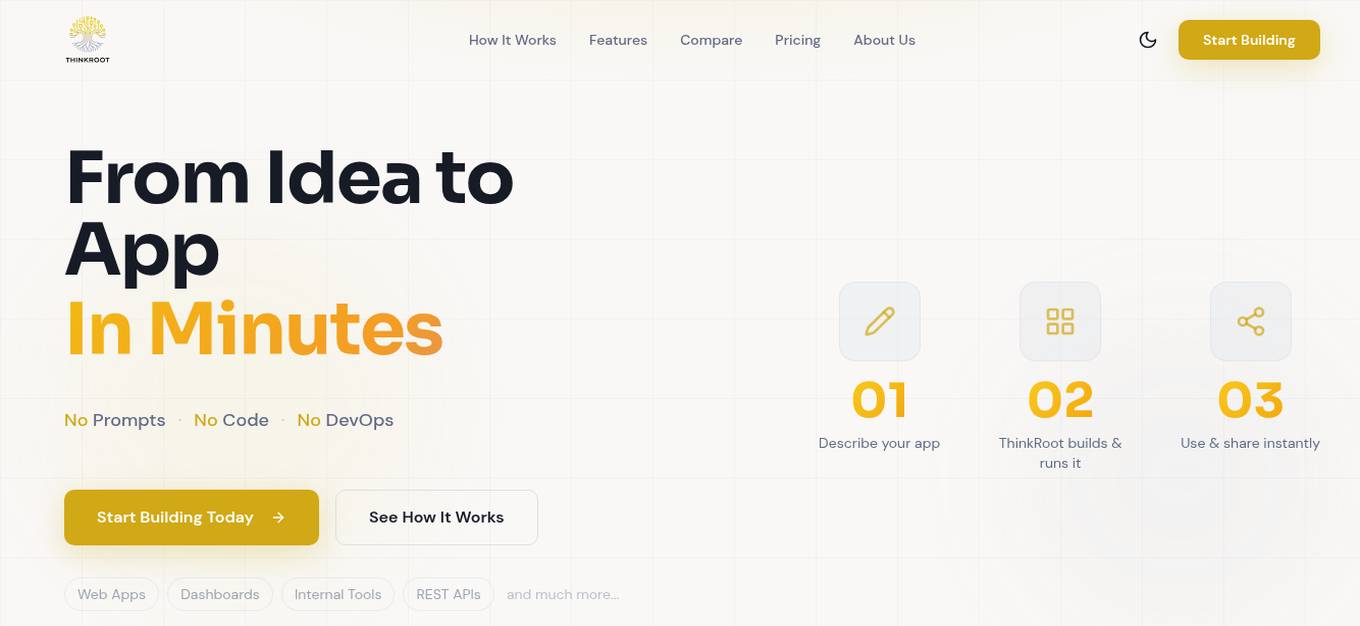
ThinkRoot
ThinkRoot is an AI Compiler that empowers users to transform their ideas into fully functional applications within minutes. By leveraging advanced artificial intelligence algorithms, ThinkRoot streamlines the app development process, eliminating the need for extensive coding knowledge. With a user-friendly interface and intuitive design, ThinkRoot caters to both novice and experienced developers, offering a seamless experience from concept to deployment. Whether you're a startup looking to prototype quickly or an individual with a creative vision, ThinkRoot provides the tools and resources to bring your ideas to life effortlessly.
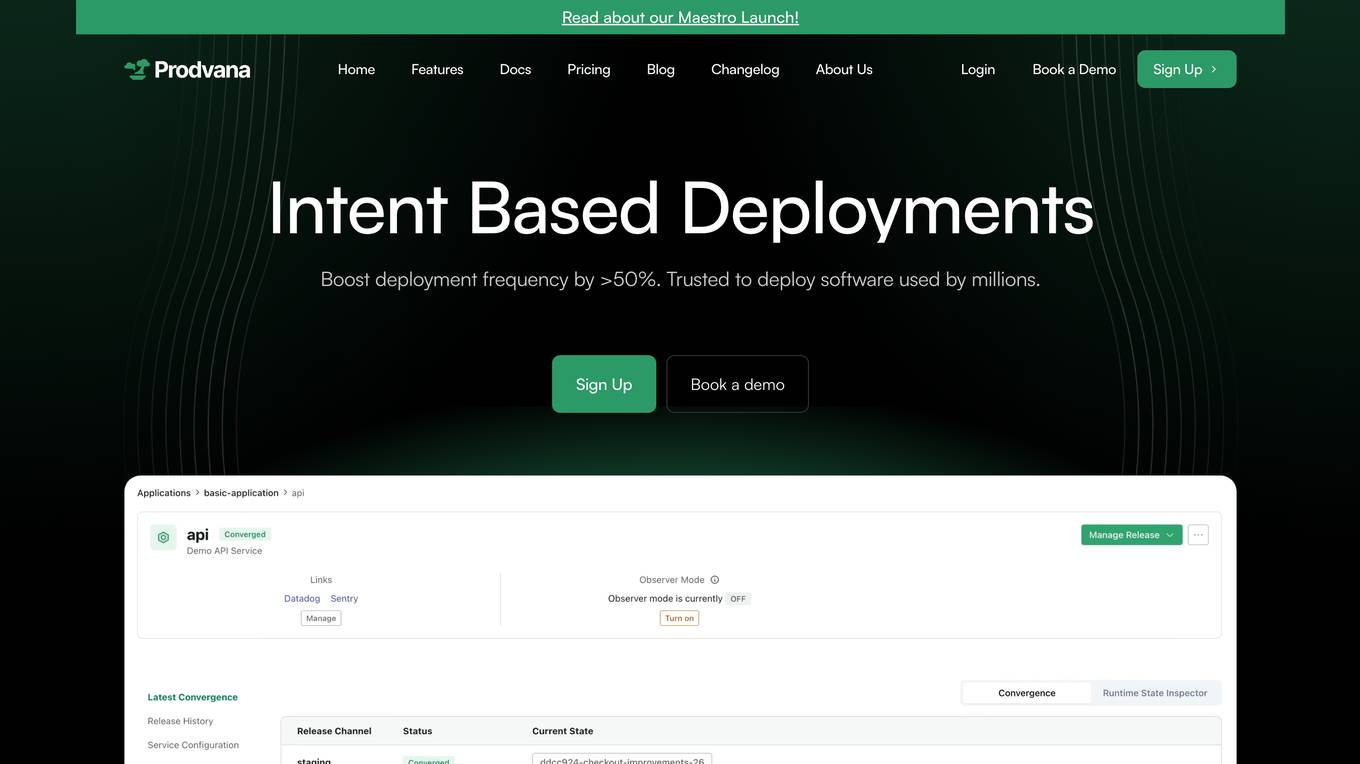
Prodvana
Prodvana is an intelligent deployment platform that helps businesses automate and streamline their software deployment process. It provides a variety of features to help businesses improve the speed, reliability, and security of their deployments. Prodvana is a cloud-based platform that can be used with any type of infrastructure, including on-premises, hybrid, and multi-cloud environments. It is also compatible with a wide range of DevOps tools and technologies. Prodvana's key features include: Intent-based deployments: Prodvana uses intent-based deployment technology to automate the deployment process. This means that businesses can simply specify their deployment goals, and Prodvana will automatically generate and execute the necessary steps to achieve those goals. This can save businesses a significant amount of time and effort. Guardrails for deployments: Prodvana provides a variety of guardrails to help businesses ensure the security and reliability of their deployments. These guardrails include approvals, database validations, automatic deployment validation, and simple interfaces to add custom guardrails. This helps businesses to prevent errors and reduce the risk of outages. Frictionless DevEx: Prodvana provides a frictionless developer experience by tracking commits through the infrastructure, ensuring complete visibility beyond just Docker images. This helps developers to quickly identify and resolve issues, and it also makes it easier to collaborate with other team members. Intelligence with Clairvoyance: Prodvana's Clairvoyance feature provides businesses with insights into the impact of their deployments before they are executed. This helps businesses to make more informed decisions about their deployments and to avoid potential problems. Easy integrations: Prodvana integrates seamlessly with a variety of DevOps tools and technologies. This makes it easy for businesses to use Prodvana with their existing workflows and processes.
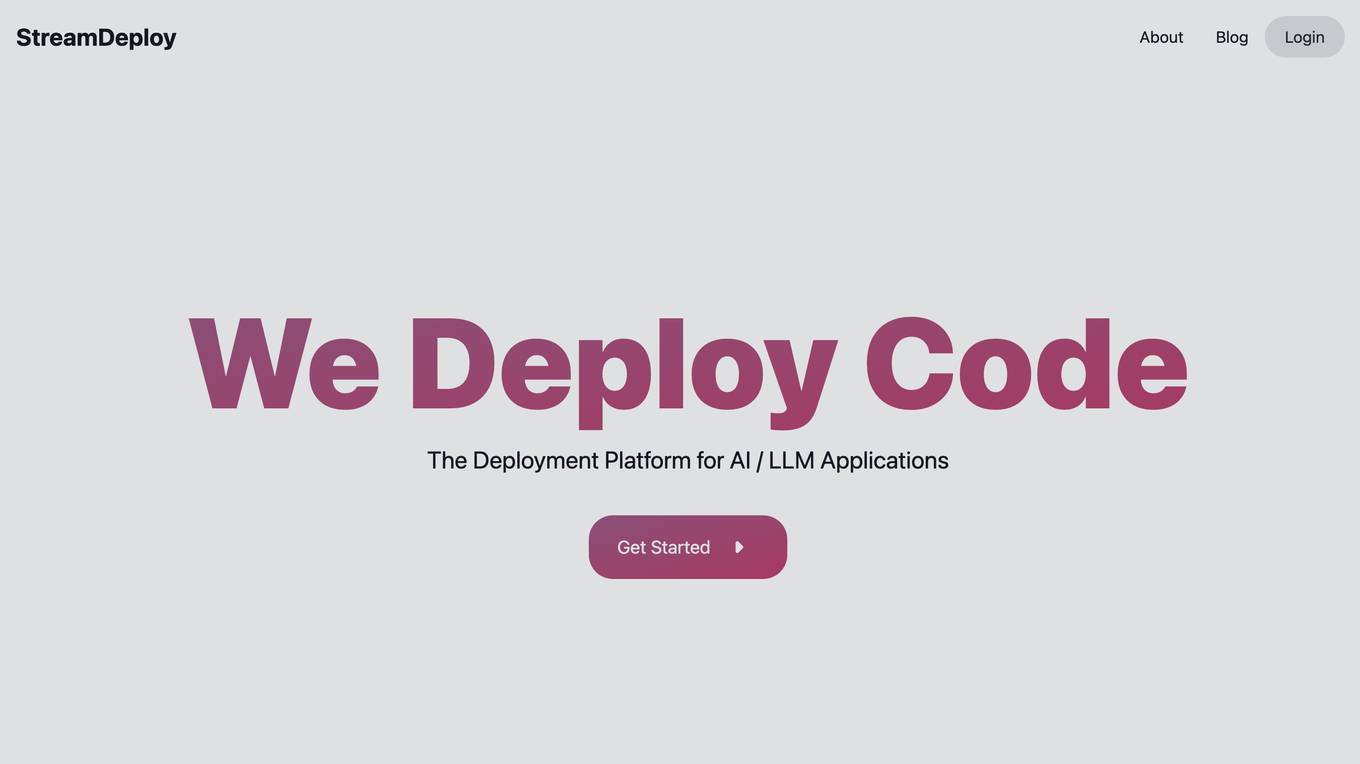
StreamDeploy
StreamDeploy is an AI-powered cloud deployment platform designed to streamline and secure application deployment for agile teams. It offers a range of features to help developers maximize productivity and minimize costs, including a Dockerfile generator, automated security checks, and support for continuous integration and delivery (CI/CD) pipelines. StreamDeploy is currently in closed beta, but interested users can book a demo or follow the company on Twitter for updates.
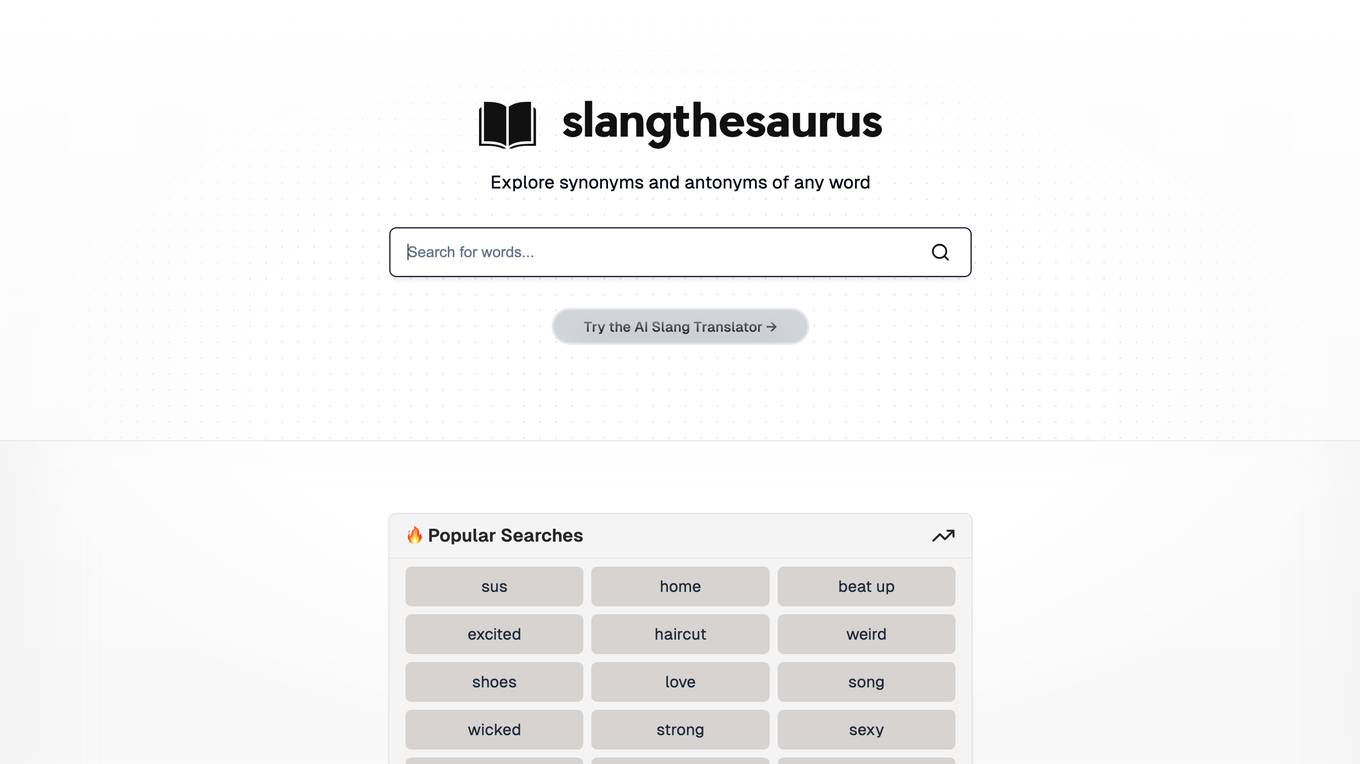
DeployManager
The website is a platform for managing software deployments. It allows users to control the deployment process, monitor progress, and make necessary adjustments. With a user-friendly interface, it simplifies the complex task of deploying software applications. The platform provides real-time updates and notifications to keep users informed about the status of their deployments.
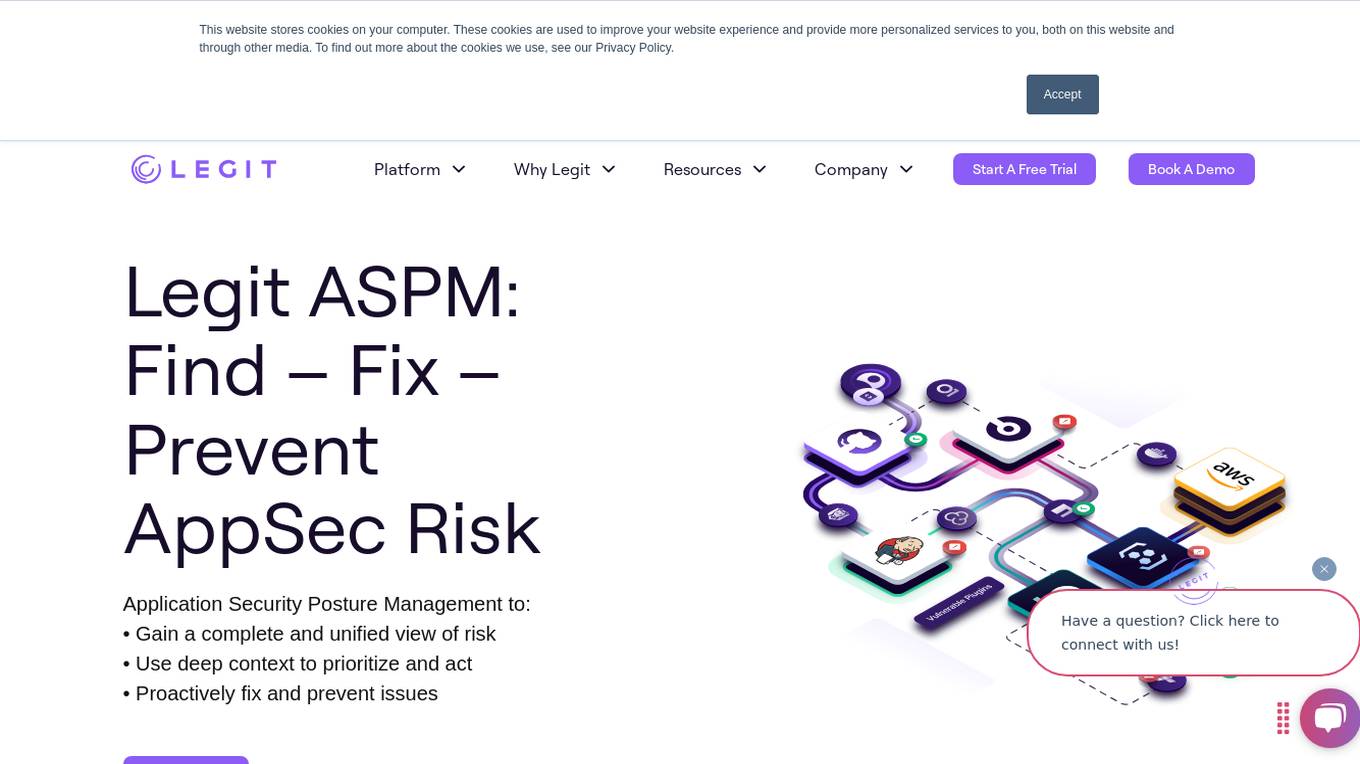
Legit
Legit is an Application Security Posture Management (ASPM) platform that helps organizations manage and mitigate application security risks from code to cloud. It offers features such as Secrets Detection & Prevention, Continuous Compliance, Software Supply Chain Security, and AI Security Posture Management. Legit provides a unified view of AppSec risk, deep context to prioritize issues, and proactive remediation to prevent future risks. It automates security processes, collaborates with DevOps teams, and ensures continuous compliance. Legit is trusted by Fortune 500 companies like Kraft-Heinz for securing the modern software factory.
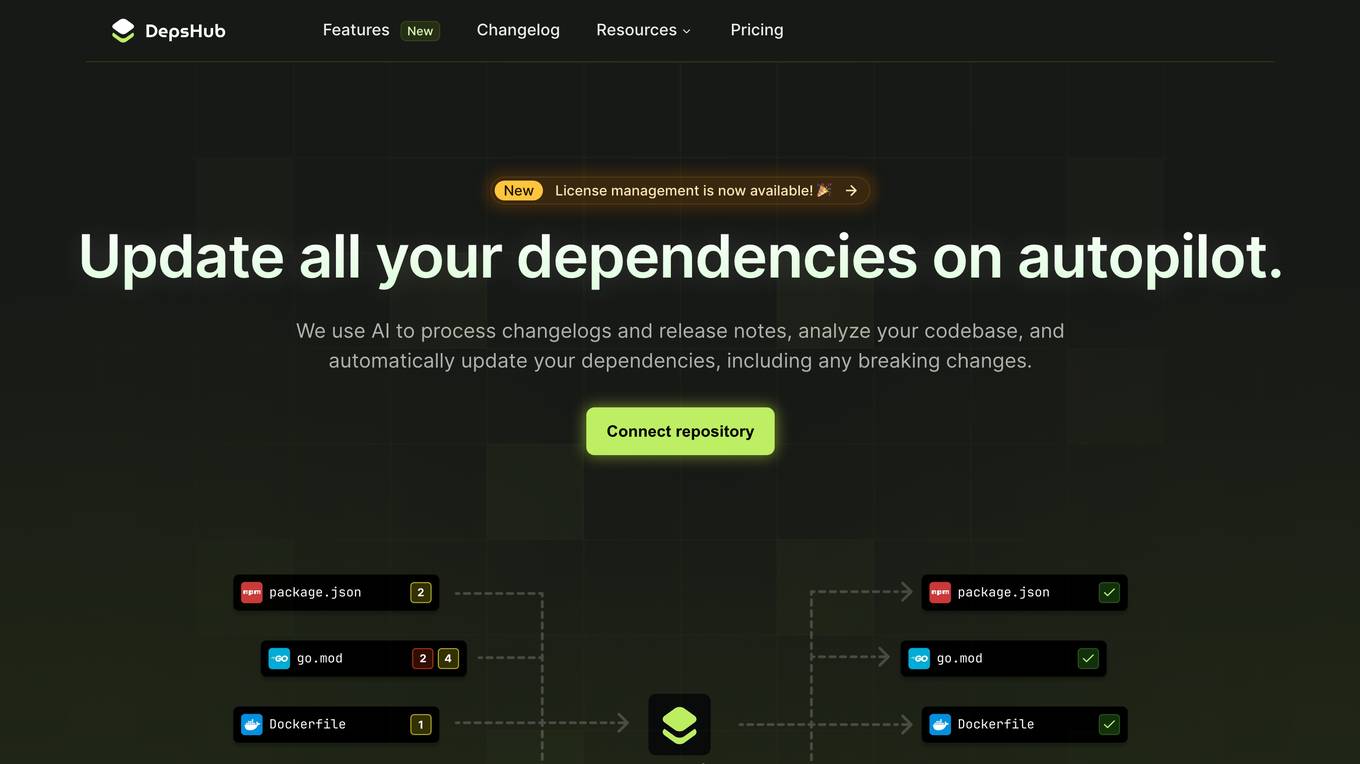
DepsHub
DepsHub is an AI-powered tool designed to simplify dependency updates for software development teams. It offers automatic dependency updates, license checks, and security vulnerability scanning to ensure teams stay secure and up-to-date. With noise-free dependency management, cross-repository overview, license compliance, and security alerts, DepsHub streamlines the process of managing dependencies for teams of any size. The AI-powered engine analyzes library changelogs, release notes, and codebases to automatically update dependencies, including handling breaking changes. DepsHub supports a wide range of languages and frameworks, making it easy for teams to integrate with their favorite technologies and save time by focusing on writing code that matters.
0 - Open Source Tools
20 - OpenAI Gpts
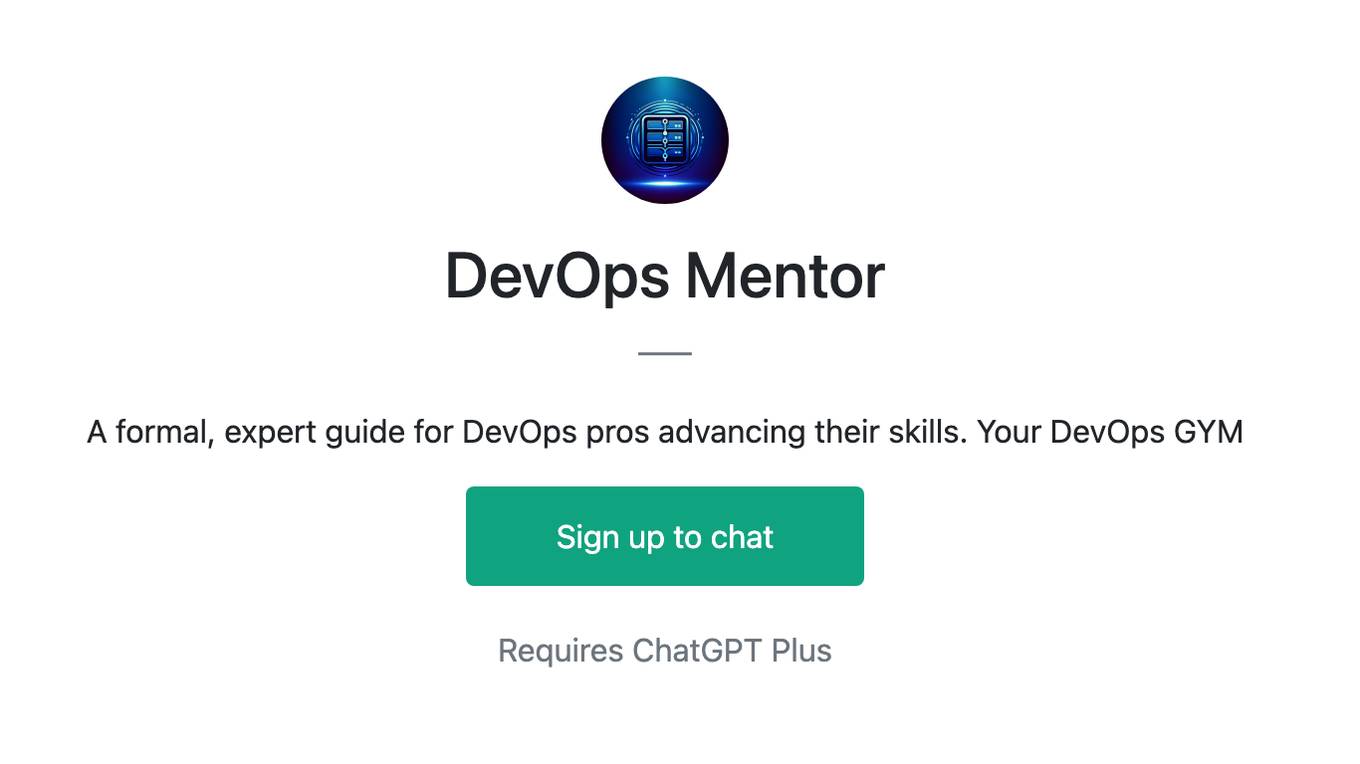
DevOps Mentor
A formal, expert guide for DevOps pros advancing their skills. Your DevOps GYM
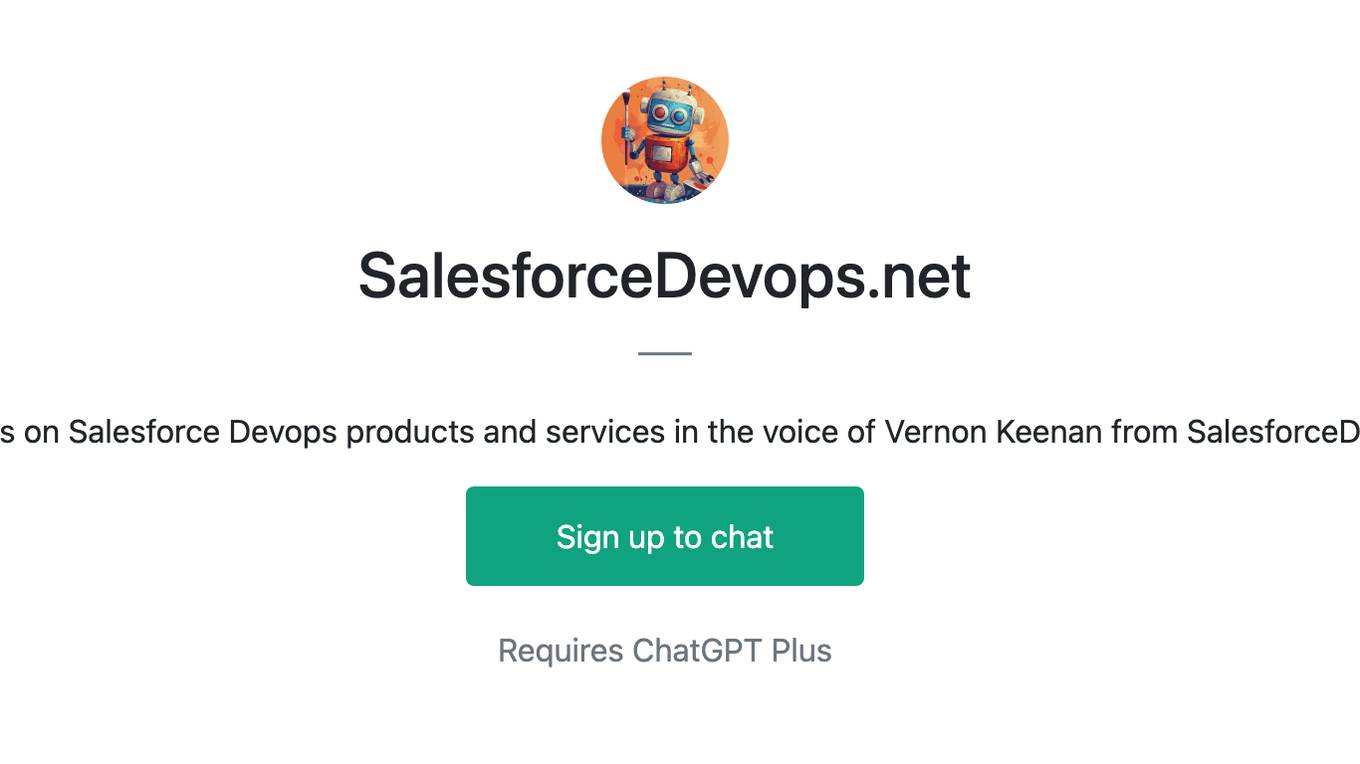
SalesforceDevops.net
Guides users on Salesforce Devops products and services in the voice of Vernon Keenan from SalesforceDevops.net
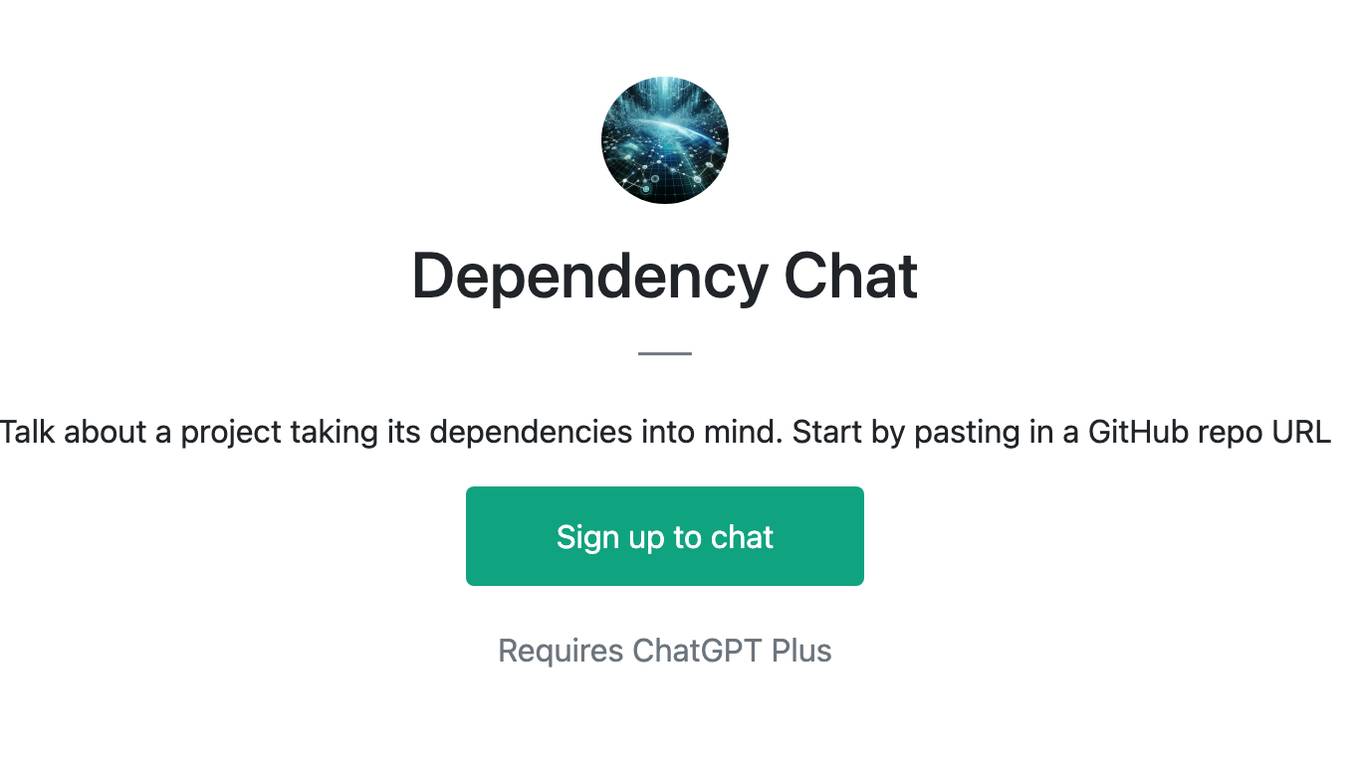
Dependency Chat
Talk about a project taking its dependencies into mind. Start by pasting in a GitHub repo URL
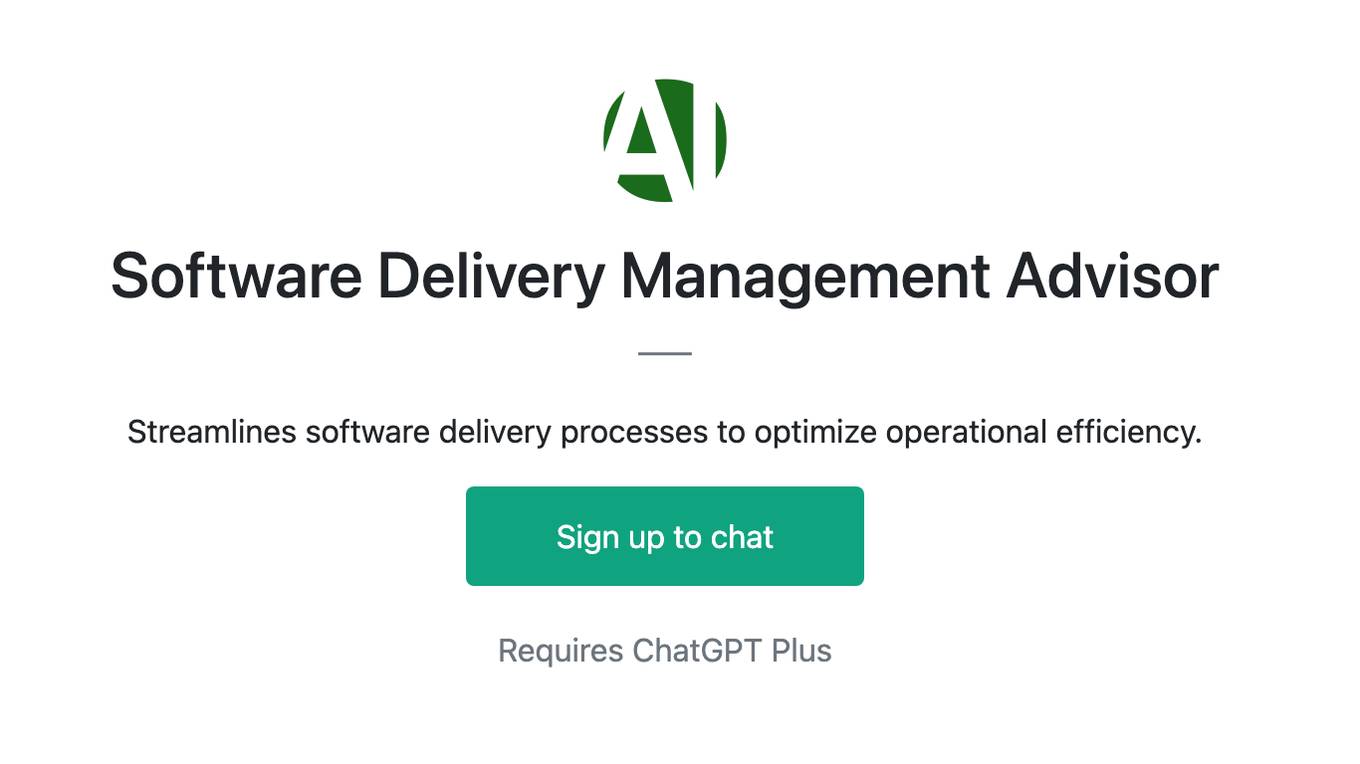
Software Delivery Management Advisor
Streamlines software delivery processes to optimize operational efficiency.
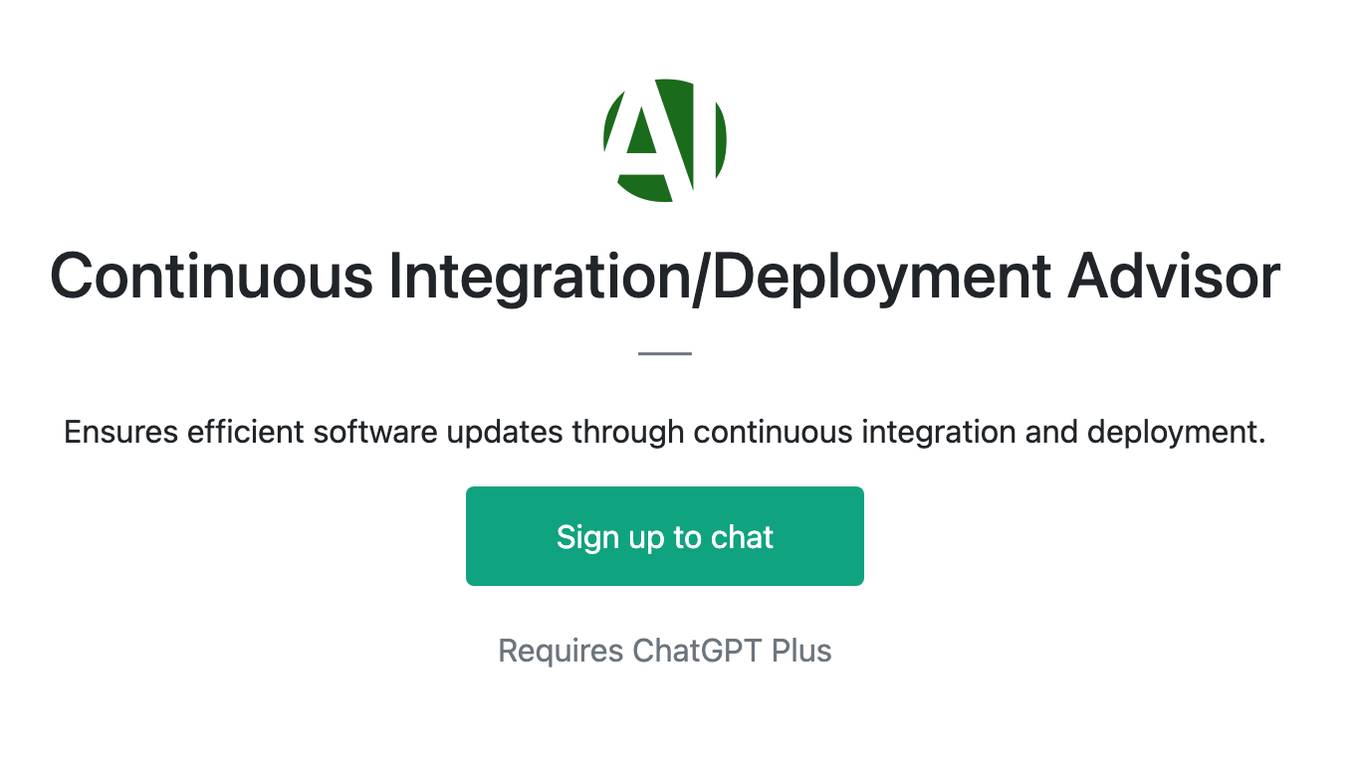
Continuous Integration/Deployment Advisor
Ensures efficient software updates through continuous integration and deployment.

Cloud Price
Your up-to-date GCP, AWS and Azure pricing expert with the latest virtual machines details.
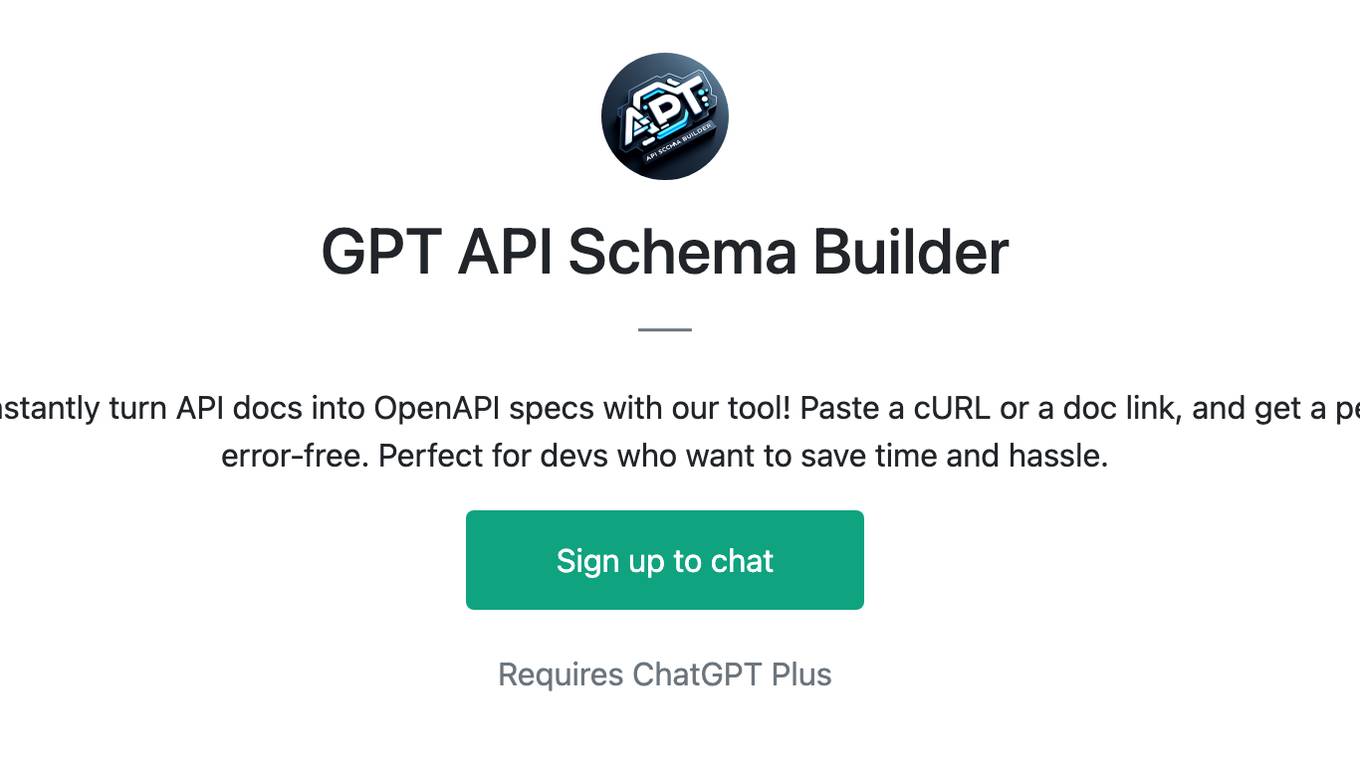
GPT API Schema Builder
Create an API Spec For You Custom GPT. Instantly turn API docs into OpenAPI specs with our tool! Paste a cURL or a doc link, and get a perfect spec in a snap. It’s quick, easy, and error-free. Perfect for devs who want to save time and hassle.
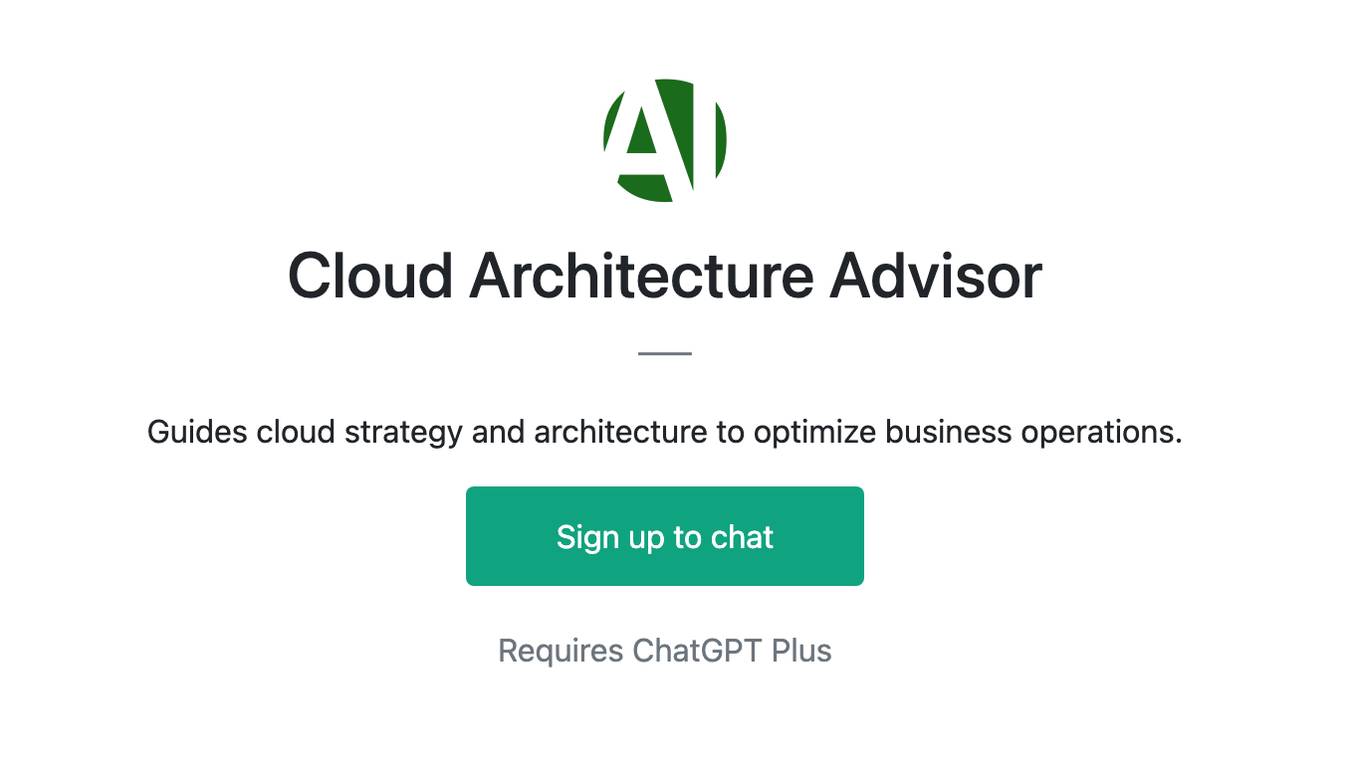
Cloud Architecture Advisor
Guides cloud strategy and architecture to optimize business operations.
